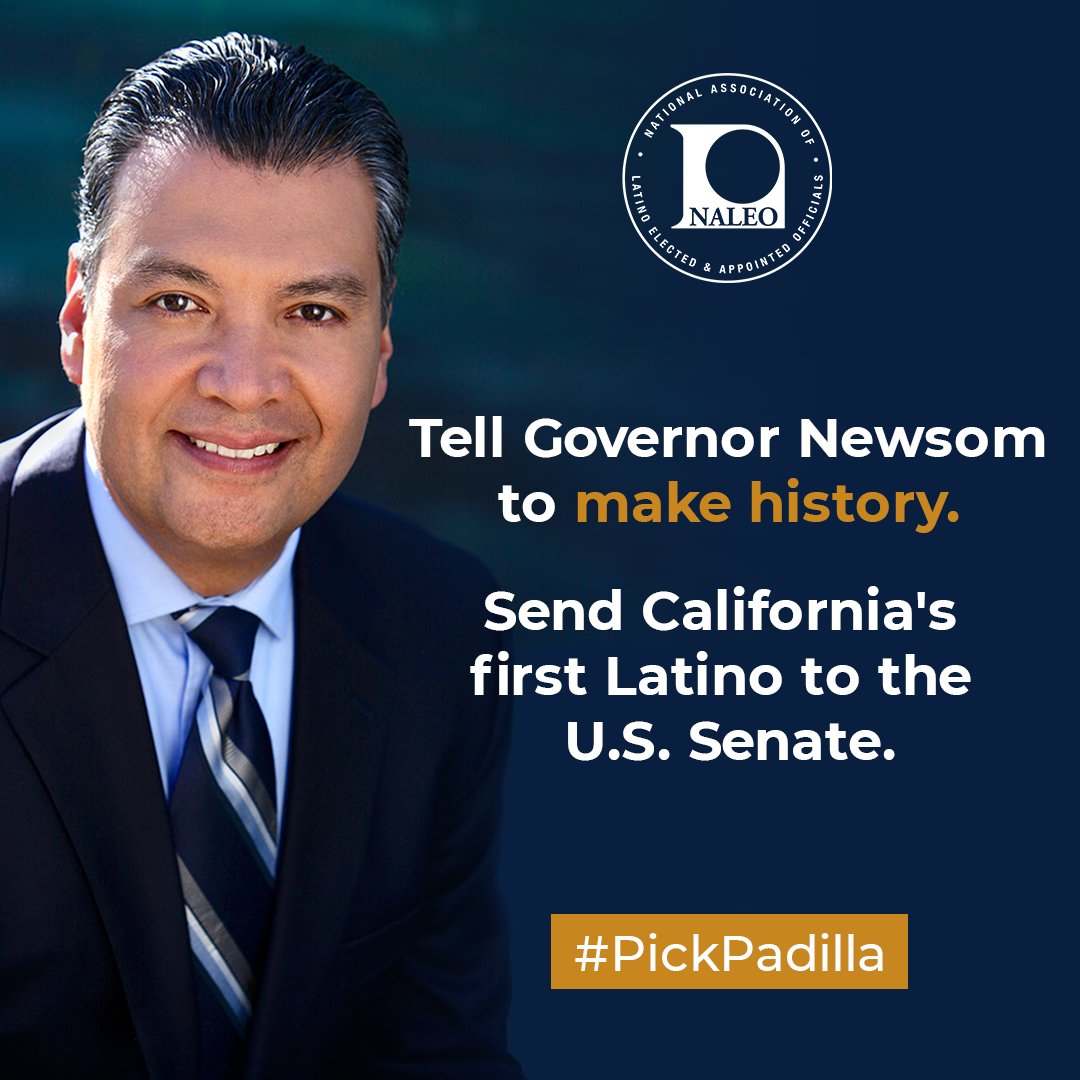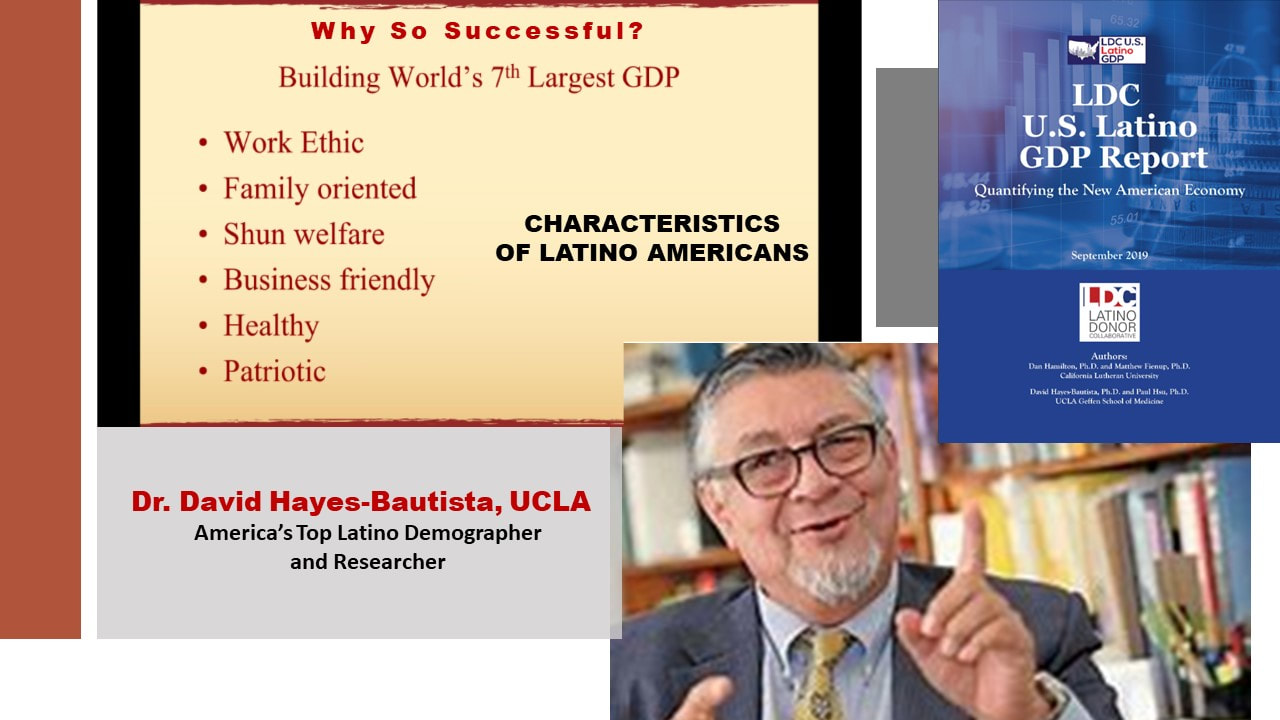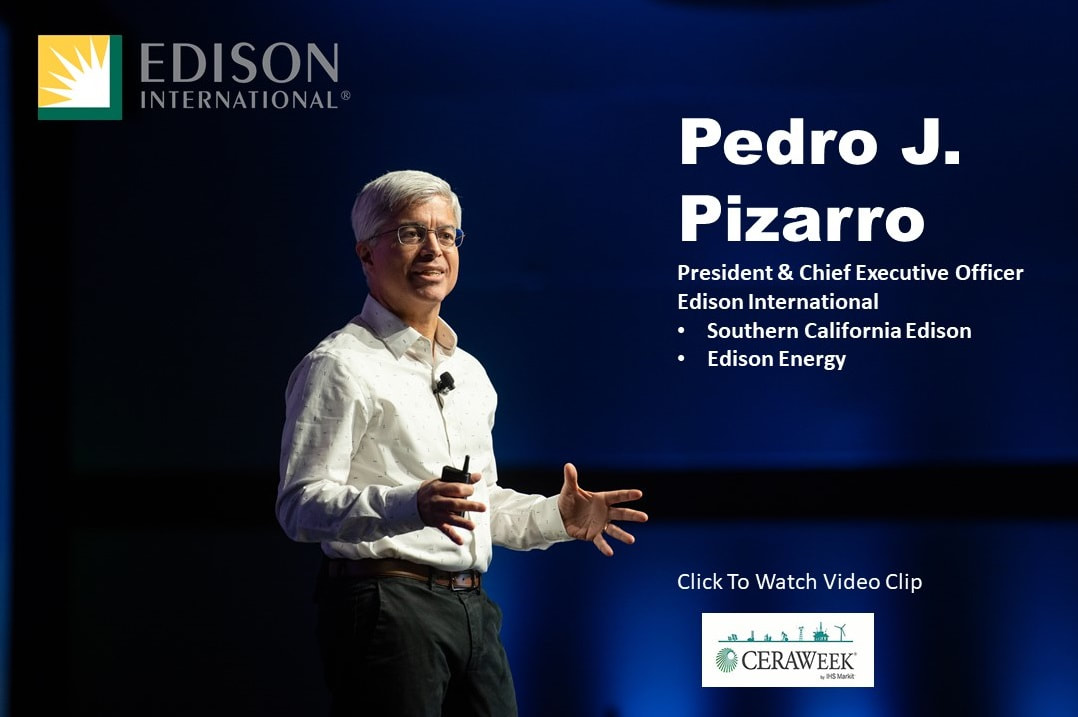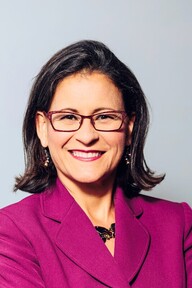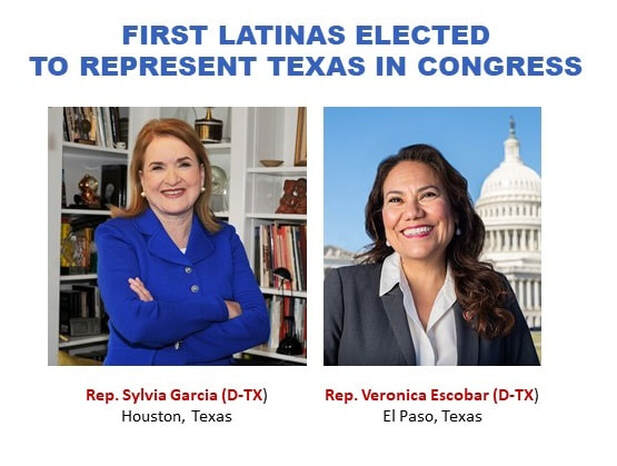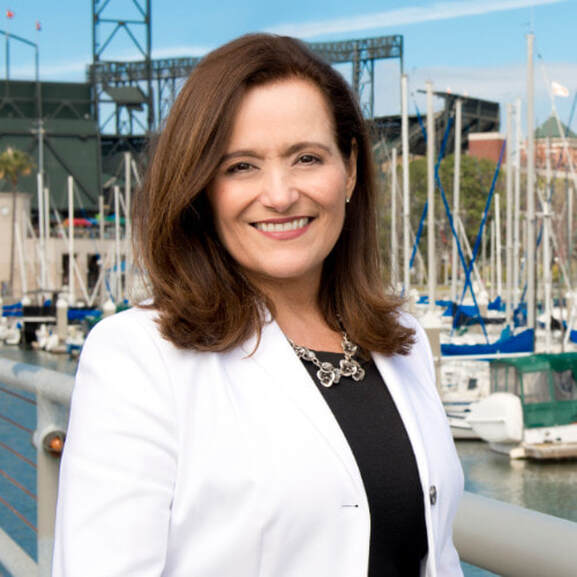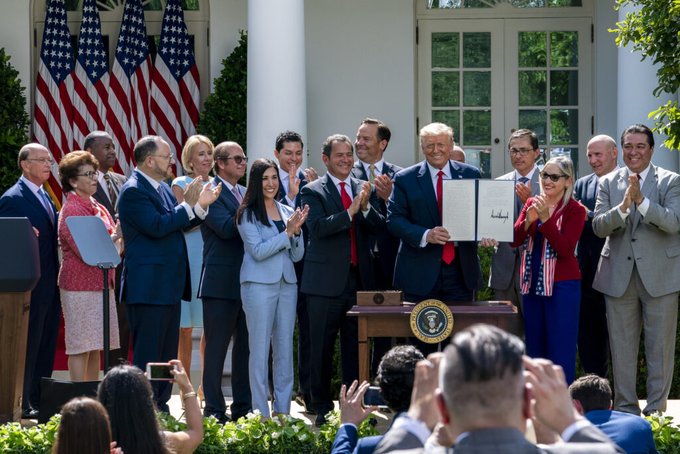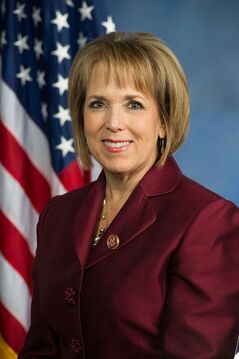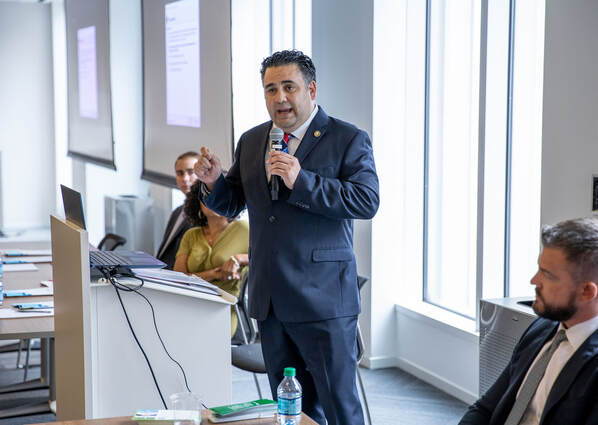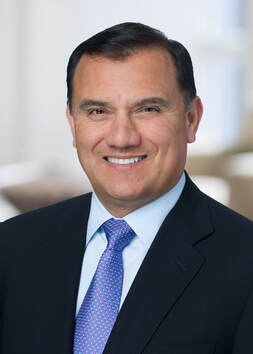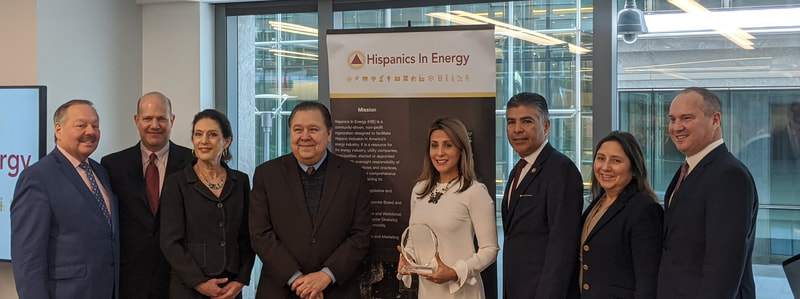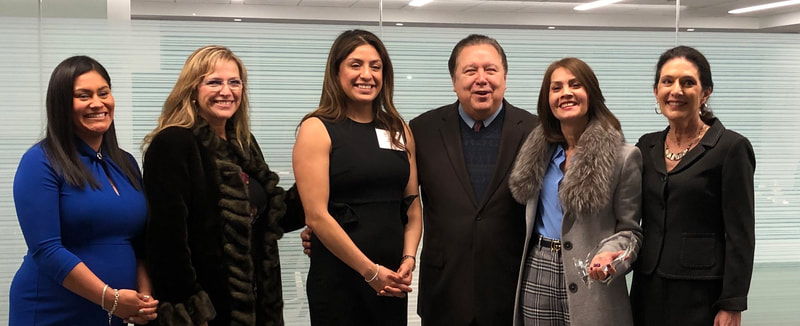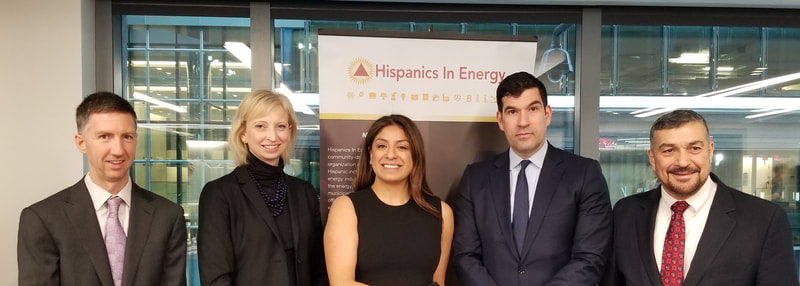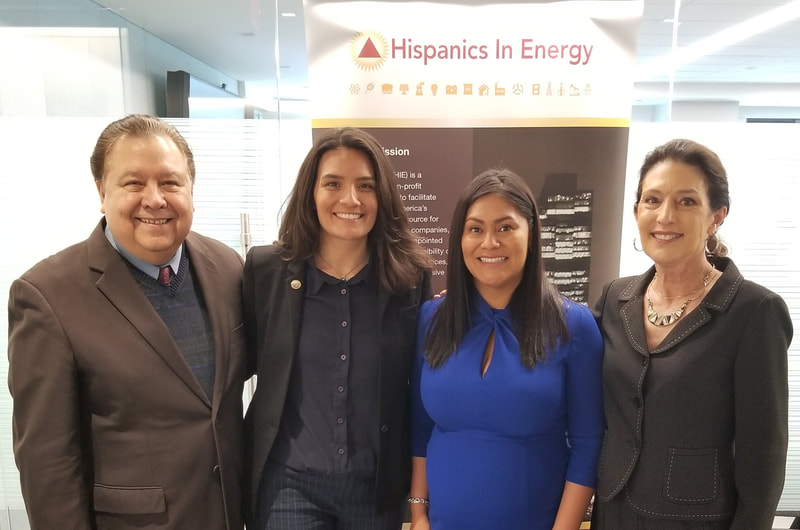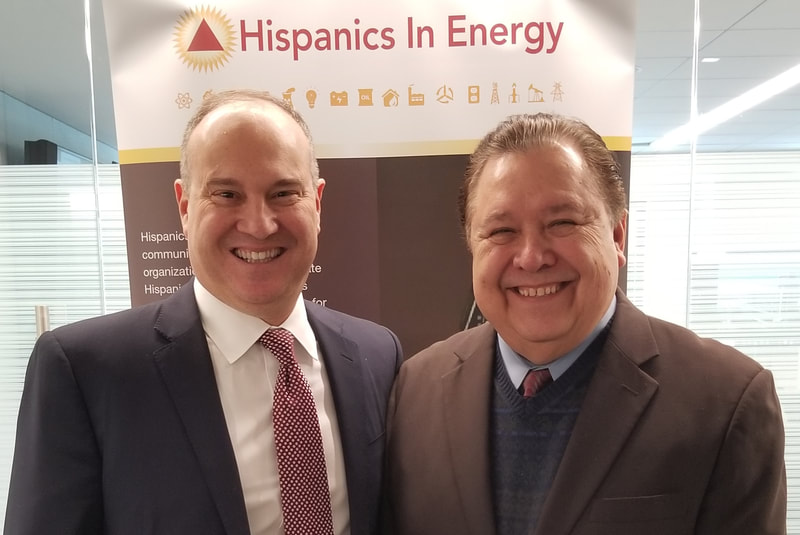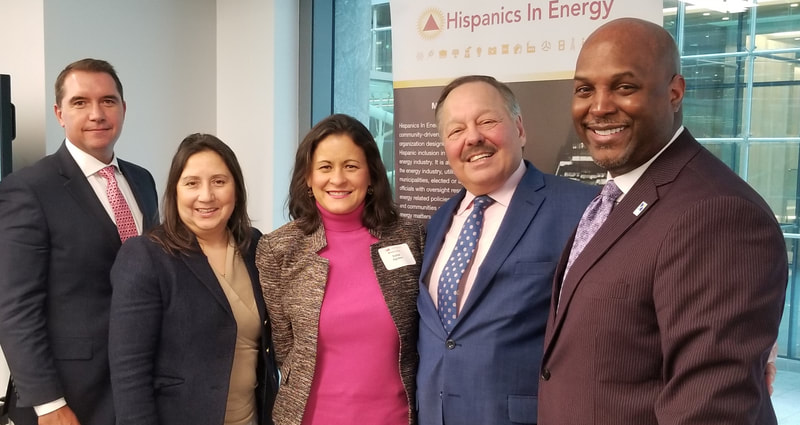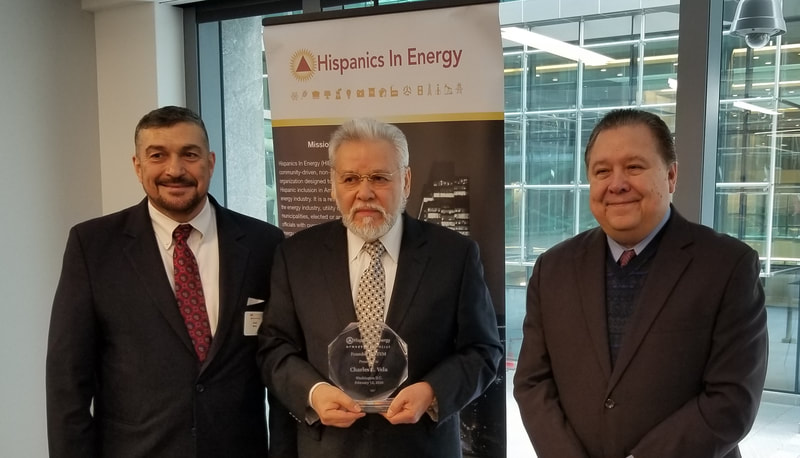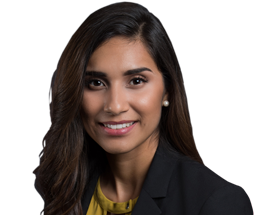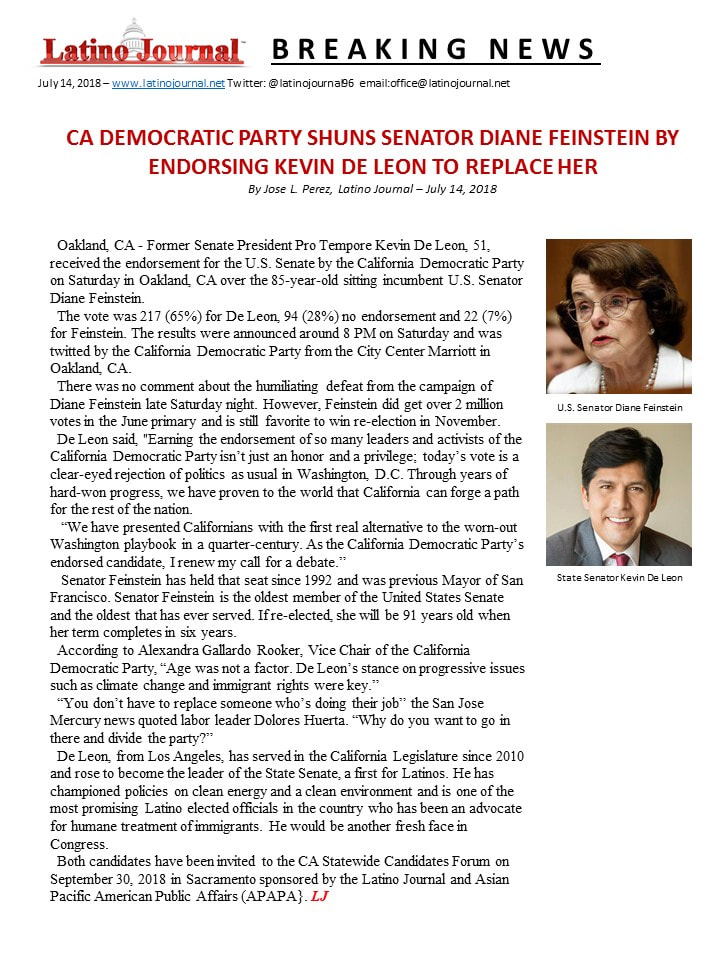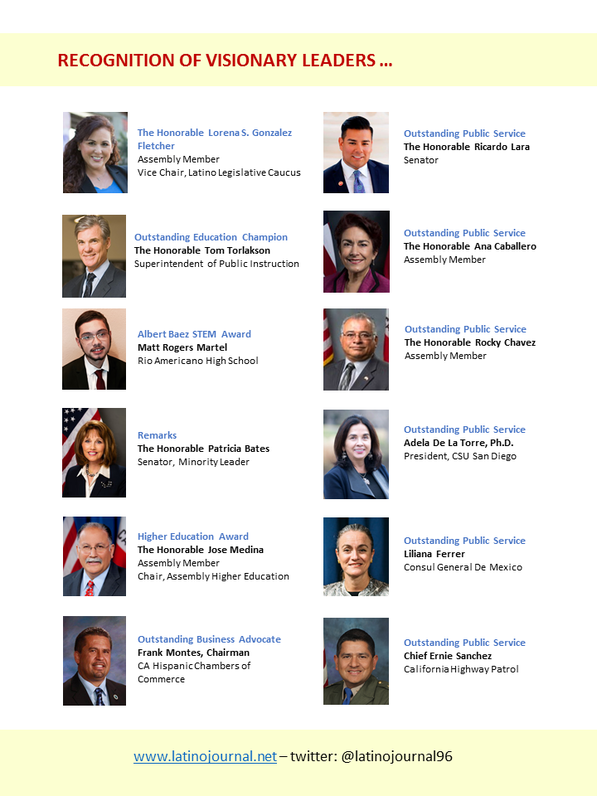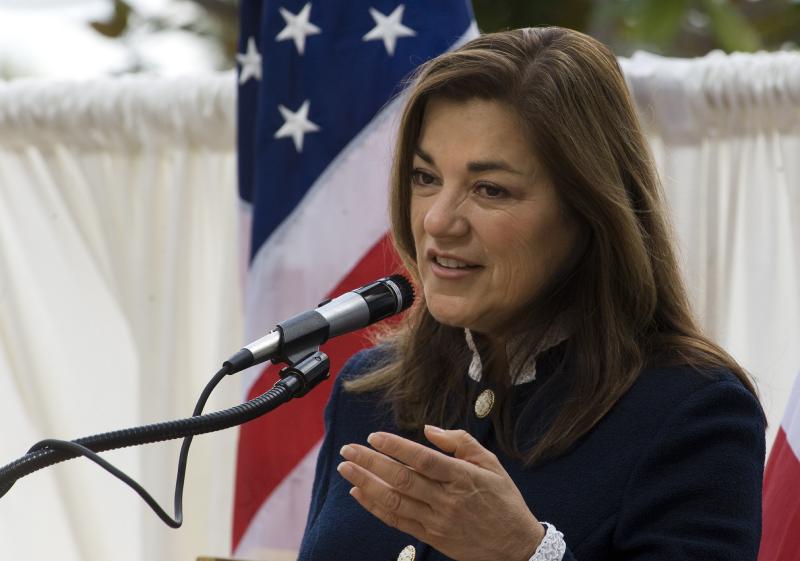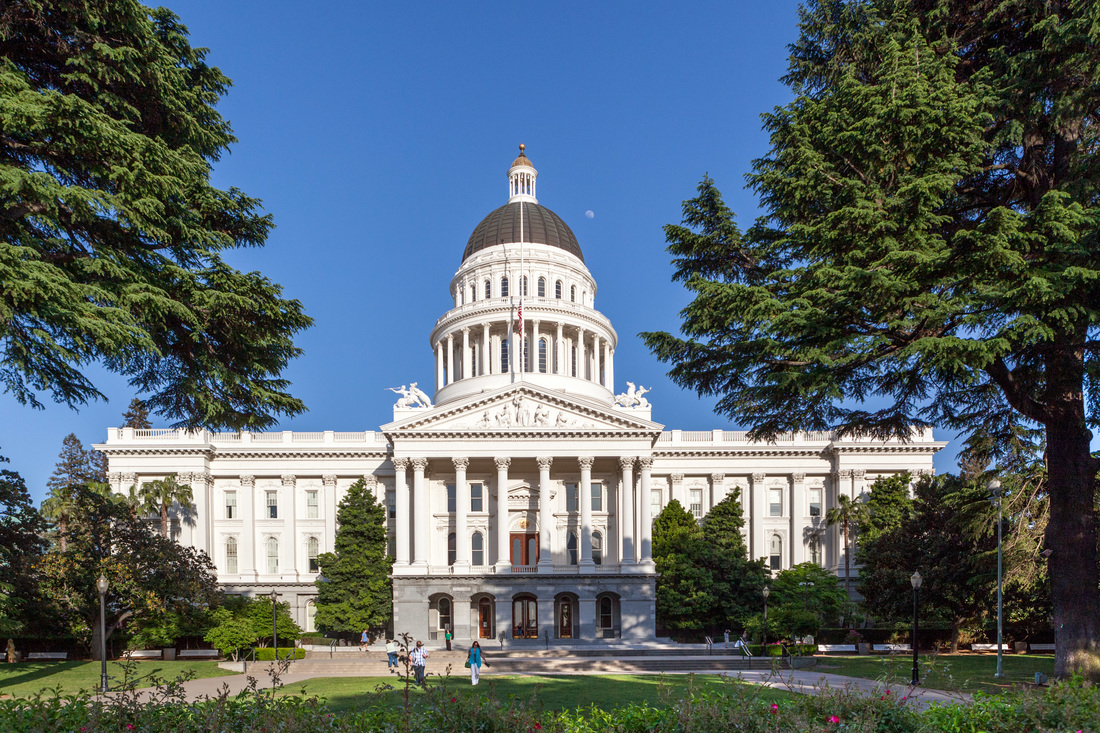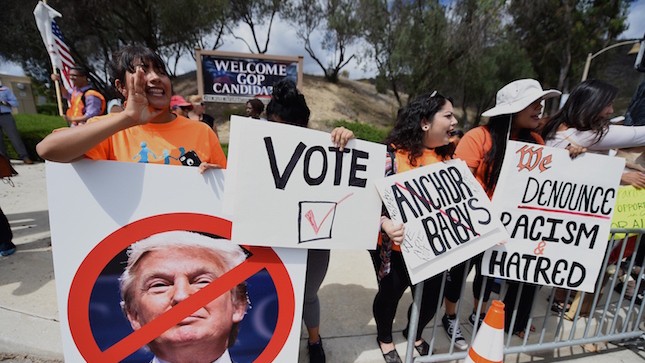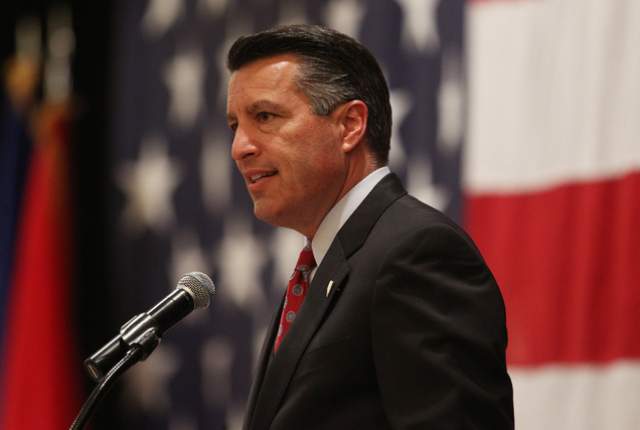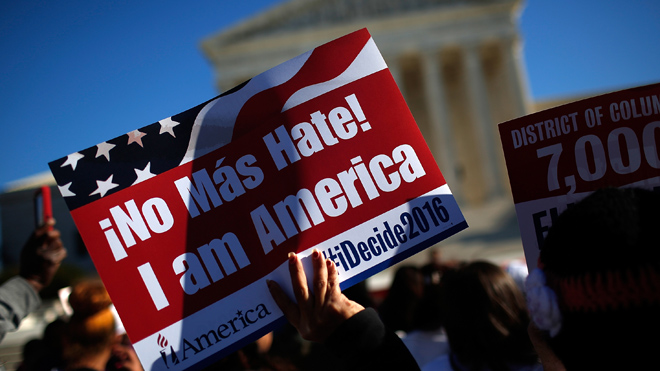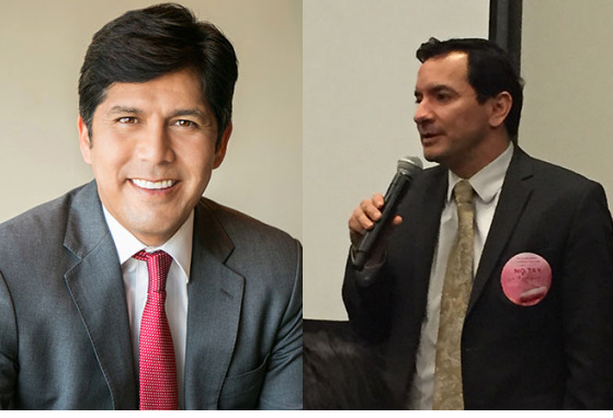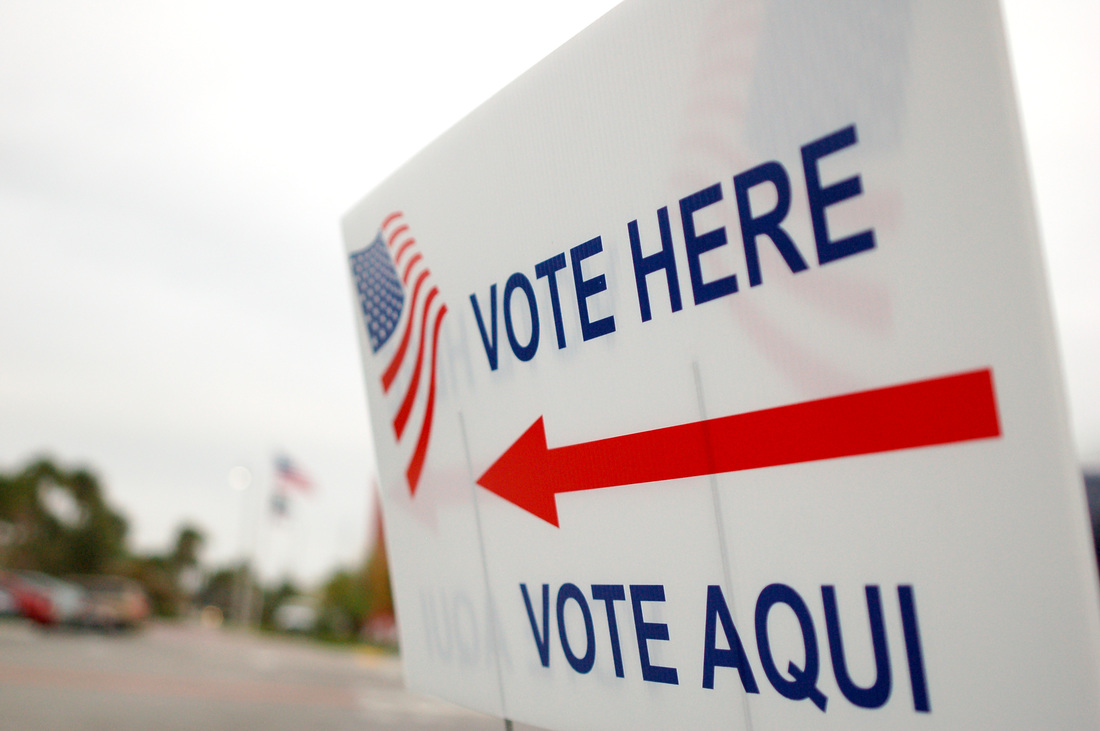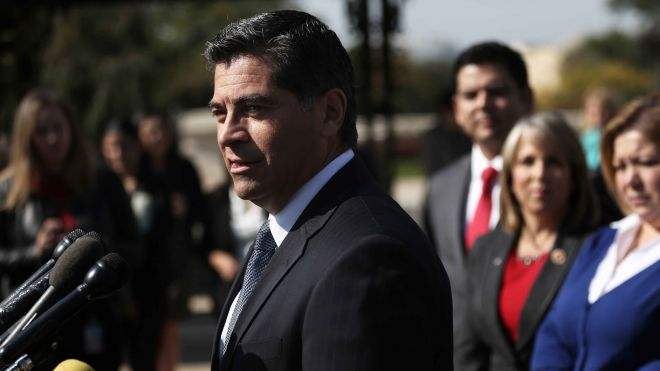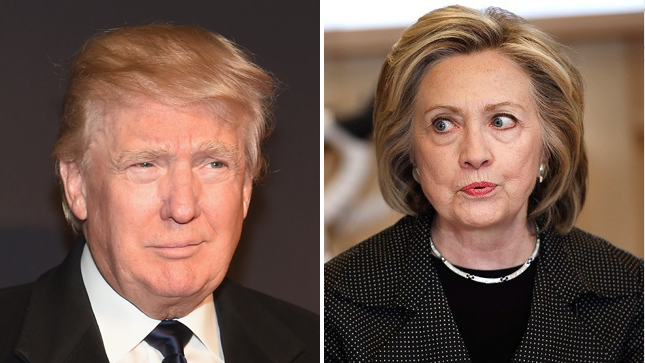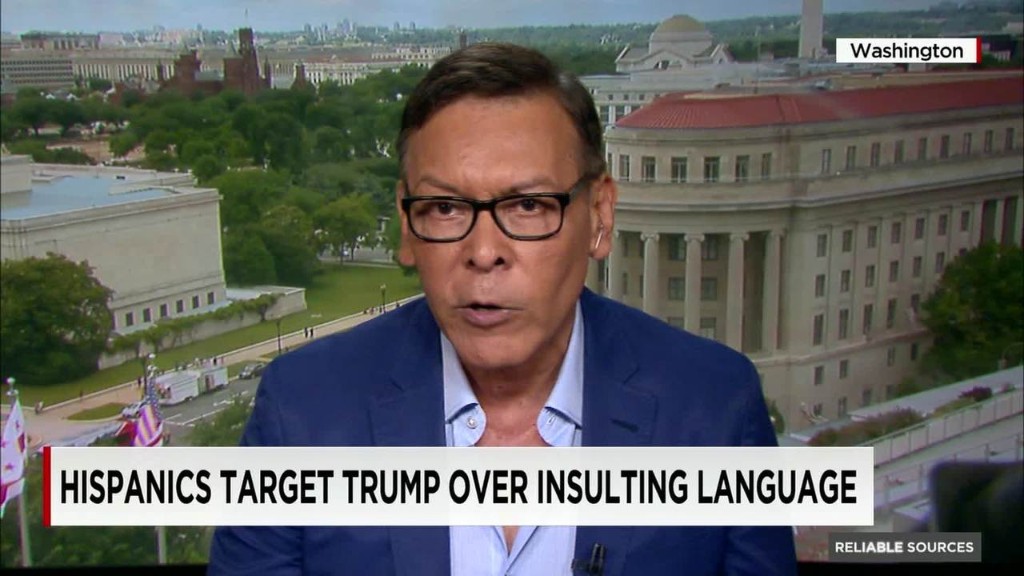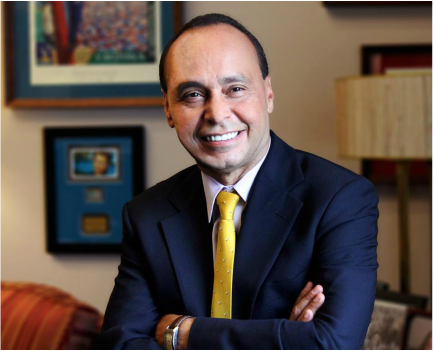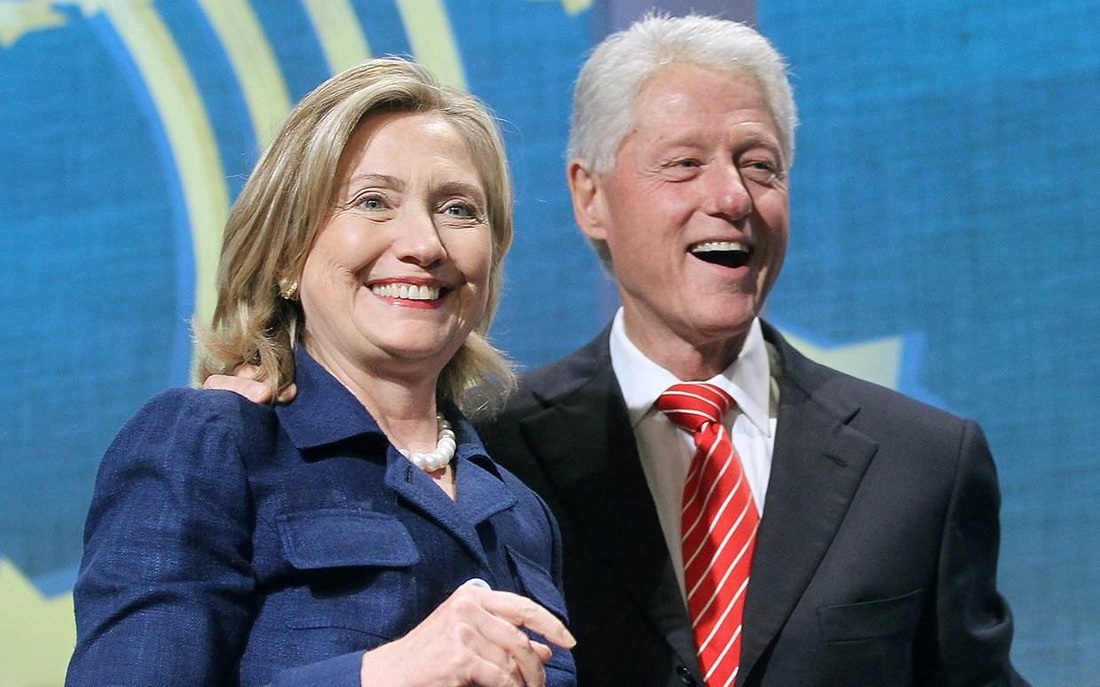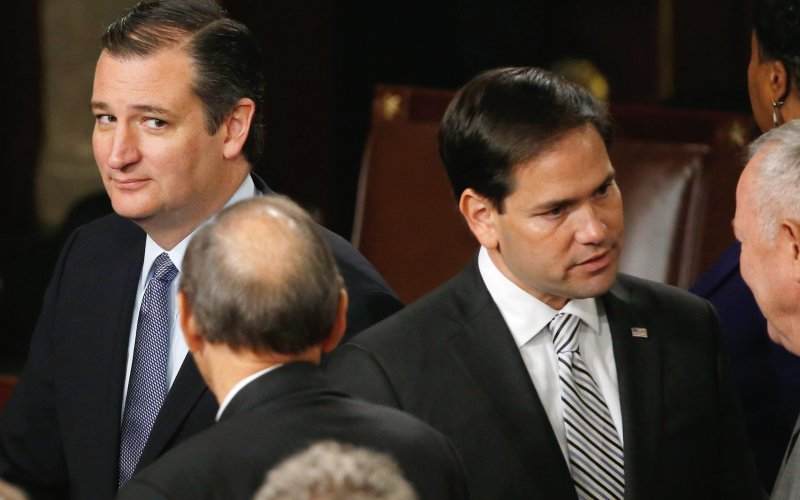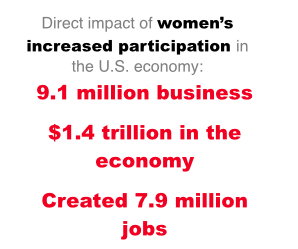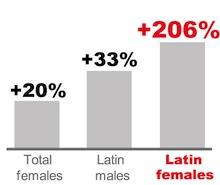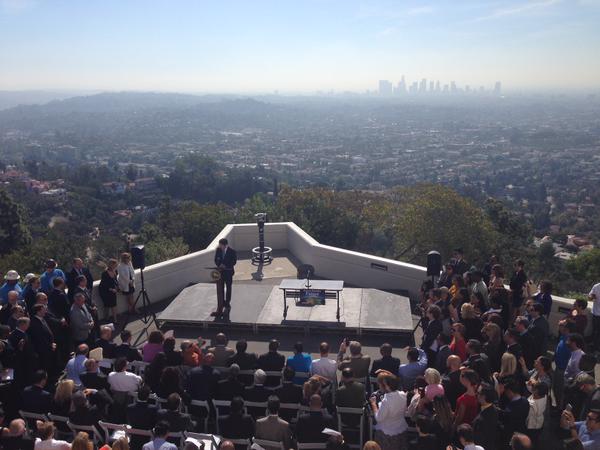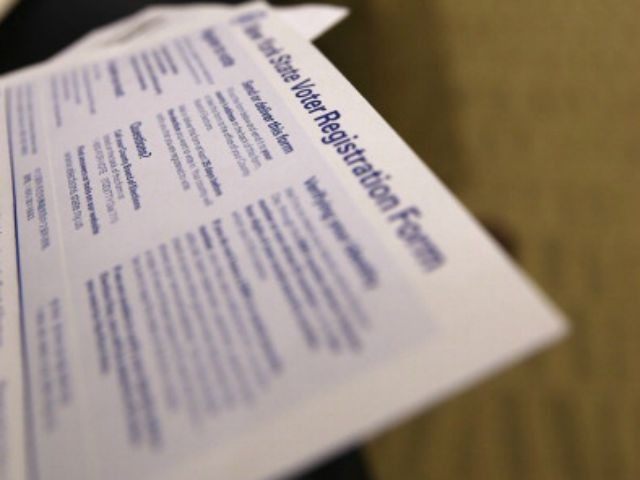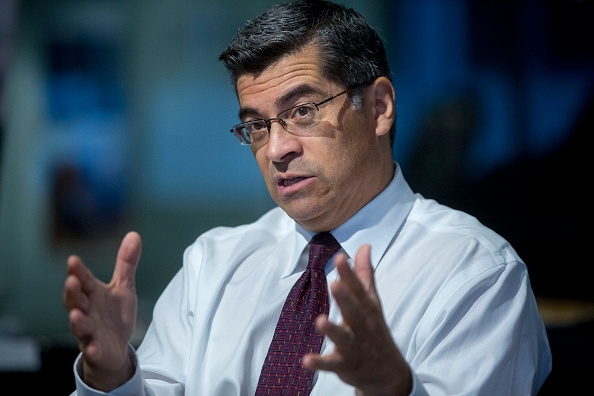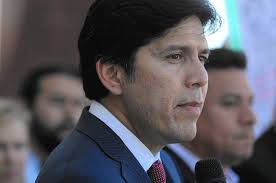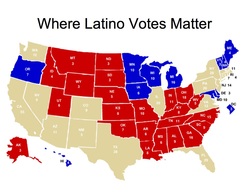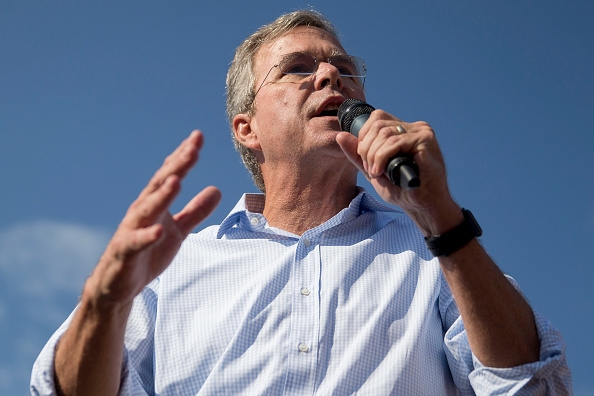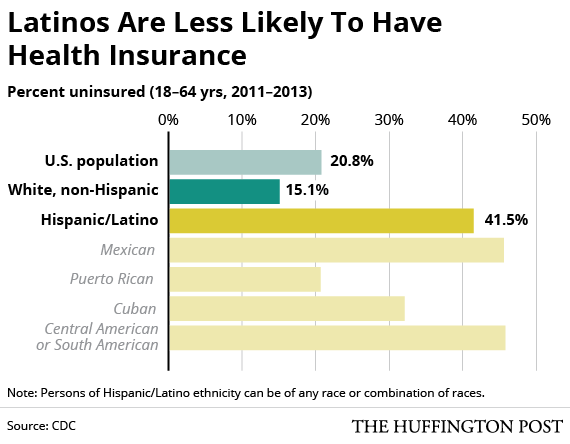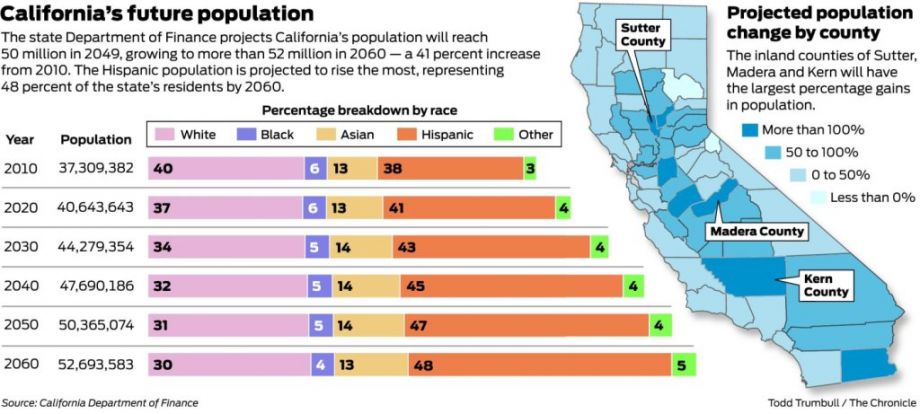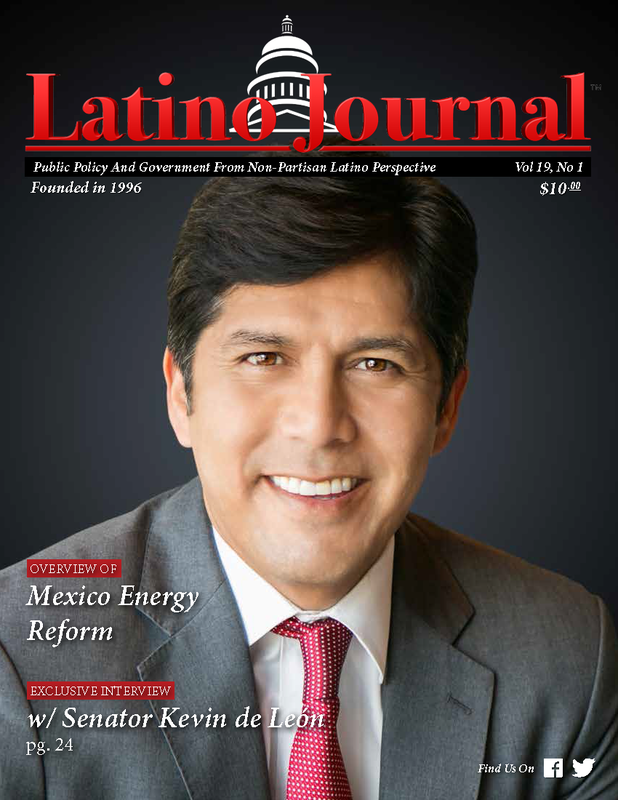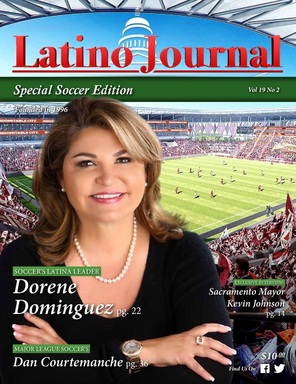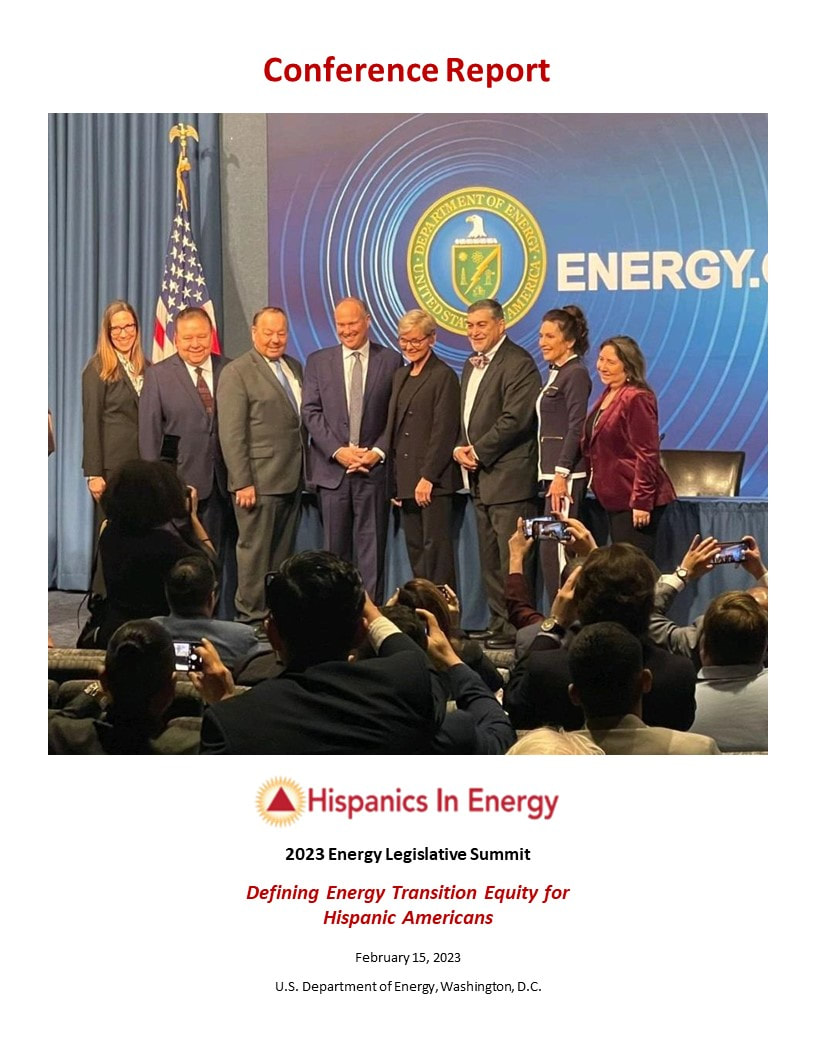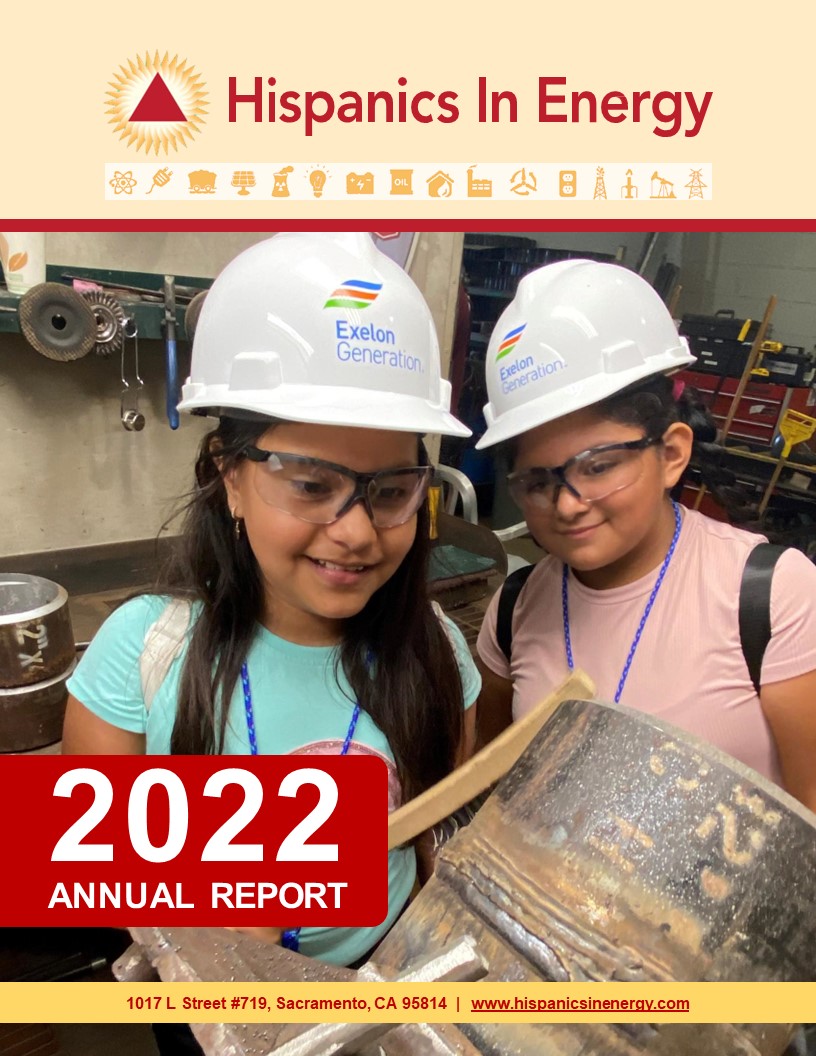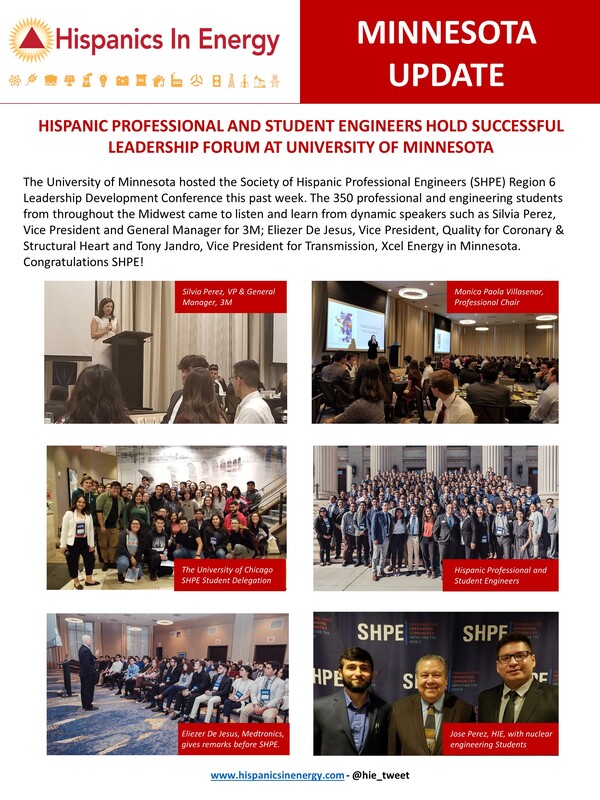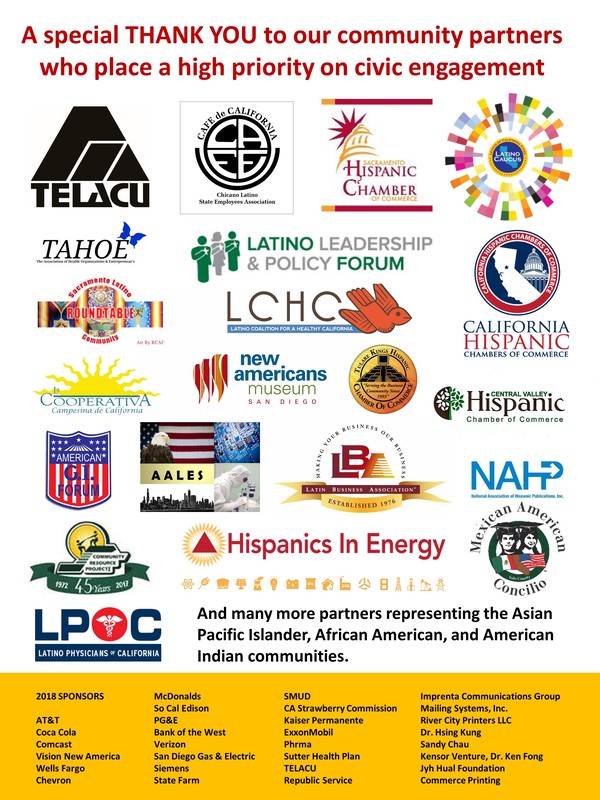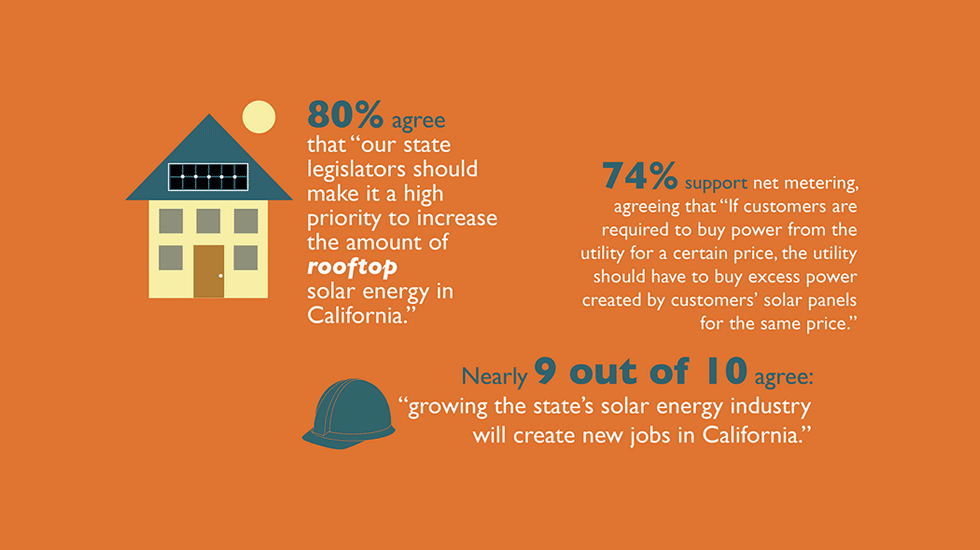|
HISPANIC SERVING INSTITUTIONS
HACU releases its Platform Issues and Recommendations for 2024 Presidential Candidates SAN ANTONIO – The Hispanic Association of Colleges and Universities has released for consideration its “Platform Issues and Recommendations for Presidential Candidates in 2024.” HACU President and CEO Antonio R. Flores requested a response on their perspectives in a letter to the candidates for President of the United States on the issues outlined in the policy document. A summary of critical issues include: Increasing Higher Education funding for Hispanic-Serving Institutions (HSIs); Develop Capacity Building; Expanding the Medical Profession Pipeline; Strengthening Education at PK-12 Hispanic-Serving School Districts and HSIs; Advancing Comprehensive Immigration Reform; Increasing Hispanic Representation in Federal Work Force Management; and Increasing the Number of Hispanic Political Appointees. “HACU has submitted similar documents to the main candidates for each presidential election over the years highlighting issues and recommendations identified as strategically important to the Association,” said HACU President and CEO Antonio R. Flores HSIs across the nation educate more than 5.2 million students from diverse backgrounds, including two-thirds of the 3.6 million Hispanic college students. HACU-members and supporters are urged to include these issues in their discussions with candidates and advocate for greater attention to the needs of Hispanic higher education and the increasingly important role Hispanics play in the U.S. workforce and American society at large. HACU has requested official responses from the presidential candidates by June 28, 2024. The Association will share the responses received from candidates on these issues of national importance, as voters consider candidates for the 2024 Presidential election. To download a copy of HACU’s Platform Issues and Recommendations 2024, click here. About HACU The Hispanic Association of Colleges and Universities, founded in 1986, represents more than 500 colleges and universities in the United States, Latin America, Spain and school districts throughout the U.S. HACU is the only national association representing existing and emerging Hispanic-Serving Institutions (HSIs). The Association’s headquarters are n San Antonio, Texas, with regional offices in Washington, D.C and Sacramento, California. ### Contact: Norma Jean Revilla-Garcia Senior Executive Director of Communications and Marketing Hispanic Association of Colleges and Universities Phone: (210) 576-3206 E-Mail: [email protected] Christopher de Hoyos Assistant Director of Communications and Marketing Hispanic Association of Colleges and Universities Phone: (210) 576-3242 E-Mail: [email protected]
|
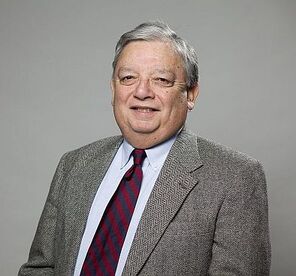
ALBERT C. ZAPANTA
President & CEO United States-Mexico Chamber of Commerce - Dallas, Texas Click on image for more information Many leaders emerge from America's Latino community and volumes could be written about each. Al Zapanta is one. Zapanta, who is known as a highly decorated Viet Nam war hero, former head of public affairs of Atlantic Richfield Company (ARCO) and advisor to Presidents, is also a businessman who founded Paz Resources and was CEO of Paz Energy, a highly successful venture. And, he once served on the Board of Directors of Tyson Foods. Today Zapanta serves on the Irvine (near Dallas), Texas City Council and conducts trade policy in North America with his U.S. Mexico Chamber of Commerce. His influence in shaping both the North American Free Trade Agreement (NAFTA) and the United States Mexico Canada Agreement (USMCA) is notable. Zapanta recently took a moment to be interviewed by the Latino Journal and we encourage you to read his remarks. TRUMP BOLDLY MOVES TO EMBRACE HISPANIC AMERICANS
|
New Hispanic Leadership Needed During Consequential Times
By Julian Canete, Peter Guzman, Cindy Ramos-Davidson, Carlos Gomez & Michel Zajur
As we watch the leadership crises of two historically significant, national Hispanic interest groups, we are reminded of something that was said by Hispanic comedian George Lopez: “When things are bad, it’s the best time to reinvent yourself.” These are important words for the Hispanic community to remember right now. We are living through a time that could deeply impact the position and role of our community; this is a good time to think again about how we are represented at a national level.
Both the U.S. Hispanic Chamber of Commerce (USHCC) and the League of United Latin American Citizens (LULAC) have long served as gathering places for Hispanic Americans, offering national representation for our community as individuals and as business owners. Unfortunately, neither organization has strong footing at this moment. The board at USHCC has dismissed its president and CEO amid a sensational scandal involving accusations of financial and personal impropriety. Meanwhile, LULAC’s president is facing calls for his resignation after he applauded President Donald Trump’s plans for immigration reform.
In both cases, it strikes us that the role of the individual became greater than the role of the group — this is the beginning of the end of any effective leadership, and it pains us to see it happening in the Latino community in such a public way. Like any national leader, the men and women who preside over Hispanic organizations must put themselves and their personal views last while they faithfully represent their membership. The day an organization president or CEO believes that he or she is the organization is the day the organization begins to crumble.
Much like America herself, national advocacy groups (Hispanic or otherwise) do better when their power comes from — and remains with — the state and local level. As the heads of state and local Hispanic chambers of commerce, we are looking for national representation that recognizes that our organizations are in the best position to serve Hispanic business owners because we know them, and work with them, personally every day. Our groups will happily partner with organizations that can represent us in Washington, D.C., but our independence is important.
In the coming days, more than a dozen other heads of local and state Hispanic chambers in co-hosting a meeting of The Latino Coalition (TLC) — another national group that represents Hispanic entrepreneurs and consumers in the corridors of power in Washington, D.C. TLC’s focus is on business and economics, and on the public policies that provide the best opportunities for Hispanic Americans, particularly those who are starting or running their own businesses.
Those of us who are partnering with TLC are responding to their mantra of “leadership, integrity, community and partnership.” Our experience with TLC has been one where we are treated as equals. We have never been treated as “little” chambers, but instead as leaders ourselves. There is recognition that state and local Hispanic chambers are an important and lasting tradition that should be leveraged for the good of our community, not exploited for the benefit one or two high-profile officials.
TLC’s approach is certainly influenced by its leader — Hector Barreto, Jr. — who is the son of a well-remembered, well-loved leader in our community. Hector Barreto, Sr., was one of the original founders of the U.S. Hispanic Chamber of Commerce. He was the visionary who, some forty years ago, first conceived of a national gathering place for state and local Hispanic chambers.
At a time when we have an opportunity to reinvent our national profile, Hispanic Americans should look for the leaders and groups who, like Barreto’s original Chamber, put us ahead of their own self-interest. That is where we will find a national gathering place and the voice we need during these consequential times.
Julian Canete is the president and CEO of the California Hispanic Chambers of Commerce; Peter Guzman is the president and CEO of the Latin Chamber of Commerce — Las Vegas, Nevada; Cindy Ramos-Davidson is the president and CEO of the El Paso Hispanic Chamber of Commerce; Carlos Gomez is the president and CEO of the Hispanic Chamber of Commerce — Greater Kansas City; Michel Zajur is the president and CEO of the Virginia Hispanic Chamber of Commerce.
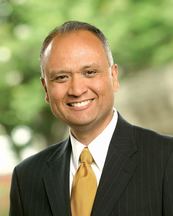
SACRAMENTO – Today, Senate Bill 17, authored by Senator Dr. Ed Hernandez, O.D., now heads to the Governor after receiving a final bipartisan vote of 31-8 by the entire Senate. SB 17 will force pharmaceutical companies to explain their reasons for rising drug prices.
Senator Hernandez issued the following statement:
“California will soon be able to bring some much needed information regarding drug pricing by pharmaceutical companies. Although this state legislation was passed in California, it’s a monumental achievement for the entire nation. If signed into law, SB 17 will set national health care policy, having impact for consumers and providers in other states. Price increases don’t happen in a vacuum. SB 17 is one of the most transformative pieces of health legislation in the country.
“While pharmaceutical companies expended considerable resources to kill this bill, the California State Legislature stood strong on behalf of consumers. In the end, the issue of skyrocketing prescription drug costs isn’t a partisan issue and that’s been evidenced by the fact that we’ve brought together a bipartisan and diverse group of stakeholders.
“Moving forward, I encourage the federal government, especially California’s representatives in the U.S. House and Senate, to consider similar legislation as we continue this discussion at a national level. I’m willing to work with policymakers interested in advancing transparency and lowering health care costs.
“I believe health care is a human right, and that’s why I have dedicated my life to policies that make it more accessible and affordable for all Californians. We must continue the fight against skyrocketing drug prices.
“I want to thank the diverse coalition of consumer groups, labor, business, insurers, and other health organizations for helping to champion SB 17. I am hopeful the Governor helps move this cause forward by signing SB 17 into law.”
###
SB 17 now moves to the Governor’s Office to await further action.
SB 17 promotes transparency in the health care system by requiring drug makers to give prior notice to purchasers before raising prices and requiring health plans to report the proportion of the health insurance that is spent on prescription drugs. Drug companies try to hide their price gouging by helping consumers with their co-payments or providing discounts to the uninsured, but all this does is shield consumers from the true cost of the drug while driving up insurance premiums for everyone.
Senator Hernandez issued the following statement:
“California will soon be able to bring some much needed information regarding drug pricing by pharmaceutical companies. Although this state legislation was passed in California, it’s a monumental achievement for the entire nation. If signed into law, SB 17 will set national health care policy, having impact for consumers and providers in other states. Price increases don’t happen in a vacuum. SB 17 is one of the most transformative pieces of health legislation in the country.
“While pharmaceutical companies expended considerable resources to kill this bill, the California State Legislature stood strong on behalf of consumers. In the end, the issue of skyrocketing prescription drug costs isn’t a partisan issue and that’s been evidenced by the fact that we’ve brought together a bipartisan and diverse group of stakeholders.
“Moving forward, I encourage the federal government, especially California’s representatives in the U.S. House and Senate, to consider similar legislation as we continue this discussion at a national level. I’m willing to work with policymakers interested in advancing transparency and lowering health care costs.
“I believe health care is a human right, and that’s why I have dedicated my life to policies that make it more accessible and affordable for all Californians. We must continue the fight against skyrocketing drug prices.
“I want to thank the diverse coalition of consumer groups, labor, business, insurers, and other health organizations for helping to champion SB 17. I am hopeful the Governor helps move this cause forward by signing SB 17 into law.”
###
SB 17 now moves to the Governor’s Office to await further action.
SB 17 promotes transparency in the health care system by requiring drug makers to give prior notice to purchasers before raising prices and requiring health plans to report the proportion of the health insurance that is spent on prescription drugs. Drug companies try to hide their price gouging by helping consumers with their co-payments or providing discounts to the uninsured, but all this does is shield consumers from the true cost of the drug while driving up insurance premiums for everyone.
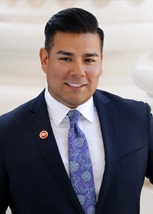
California May Move Presidential
Primary Election to March
Latino Journal – May 8, 2018
The California legislature is taking legislative action to move the State’s presidential primary election from June to March in hopes of giving California voters a louder voice in national politics.
SB 568, authored by Senator Ricardo Lara (D-LA), would do just that. The proposal, if adopted, would give California’s near last primary election to top tier of states.
California held its primary election in June in 2016 and resulted in Hillary Clinton winning the election when many thought Senator Bernie Sanders might cause an upset. Placing California among the first states with this kind of result would strongly influence the balance of the primary election process for president with a higher chance of influencing the outcome.
Secretary of State Alex Padilla is sponsoring the change and believes it will strengthen California’s influence in future presidential elections.
Senator Lara said, “California is first in the nation on clean energy, on farming, on job growth, and in the diversity of our people. The Prime Time Primary bill would make us one of the first states to hold a presidential primary and ensure our state’s voters are head in the national debate.”
Secretary of State Alex Padilla said, “The largest and most diverse state in the nation should not be an afterthought. Moving our primary earlier will give Californians a greater say in nominating a President and will also increase voter engagement and turnout in down ballot races.”
In 2008, California moved up its President Primary to February resulting in the highest voter turnout since 1980. However, according to a spokesman for Senator Lara, California had two primary elections that year resulting in higher costs so the February presidential primary election was scrapped to save money.
The Bill would take effect in 2020 the next presidential year. In non-presidential years the primary would still be held in June.
SB 568 aligns both the presidential and state elections on the same date so the State would not incur a higher cost to administer the primary election. The new California presidential and statewide primary would be held on the third Tuesday in March and authorizes the Governor to move it even earlier if other states move u their primary elections.
The Bill now goes to the Assembly where a similar measure has been introduced by Assembly Member Kevin Muller who is also Assembly Speaker pro Tempore.
Given the potential enormous advantage for California the likelihood of this passing and being signed into law is very high.
LJ
Primary Election to March
Latino Journal – May 8, 2018
The California legislature is taking legislative action to move the State’s presidential primary election from June to March in hopes of giving California voters a louder voice in national politics.
SB 568, authored by Senator Ricardo Lara (D-LA), would do just that. The proposal, if adopted, would give California’s near last primary election to top tier of states.
California held its primary election in June in 2016 and resulted in Hillary Clinton winning the election when many thought Senator Bernie Sanders might cause an upset. Placing California among the first states with this kind of result would strongly influence the balance of the primary election process for president with a higher chance of influencing the outcome.
Secretary of State Alex Padilla is sponsoring the change and believes it will strengthen California’s influence in future presidential elections.
Senator Lara said, “California is first in the nation on clean energy, on farming, on job growth, and in the diversity of our people. The Prime Time Primary bill would make us one of the first states to hold a presidential primary and ensure our state’s voters are head in the national debate.”
Secretary of State Alex Padilla said, “The largest and most diverse state in the nation should not be an afterthought. Moving our primary earlier will give Californians a greater say in nominating a President and will also increase voter engagement and turnout in down ballot races.”
In 2008, California moved up its President Primary to February resulting in the highest voter turnout since 1980. However, according to a spokesman for Senator Lara, California had two primary elections that year resulting in higher costs so the February presidential primary election was scrapped to save money.
The Bill would take effect in 2020 the next presidential year. In non-presidential years the primary would still be held in June.
SB 568 aligns both the presidential and state elections on the same date so the State would not incur a higher cost to administer the primary election. The new California presidential and statewide primary would be held on the third Tuesday in March and authorizes the Governor to move it even earlier if other states move u their primary elections.
The Bill now goes to the Assembly where a similar measure has been introduced by Assembly Member Kevin Muller who is also Assembly Speaker pro Tempore.
Given the potential enormous advantage for California the likelihood of this passing and being signed into law is very high.
LJ
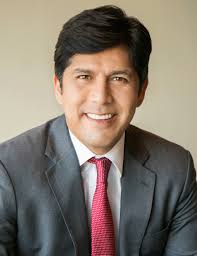 Kevin de León (D-LA), Senate President pro Temp
Kevin de León (D-LA), Senate President pro Temp
CALIFORNIA PREPARES ITSELF TO FIGHT TRUMP IMMIGRATION POLICIES
Just five days into office, President Trump today announced his executive order to bolster a wall in the southern border between the United States and Mexico. Reaction from Latino leaders has been swift and contentious to the new immigration policies initiated yesterday from Washington D.C.
On a border wall and Mexico
“A nation without borders is not a nation,” said President Trump as he addressed personnel at the Department of Homeland Security in Washington DC. “This is a law enforcement agency, but for too long, your offices and agents haven’t been allowed to properly do their jobs,” he said. “A nation without borders is not a nation,” he said.
President Trump also said he would focus first on those with criminal records. “We are going to get the bad ones out, the criminals and drug deals and gang members and cartel leaders. They day is over when they can stay in our country and wreak havoc.”
He also committed to hire an additional 5,000 border security agents and increase the number of immigration enforcement officers nationwide. He will be targeting sanctuary cities, local cities that refuse to cooperate with federal immigration cities.
The announcement has drawn both criticism and praise.
The Hill, an influential publication from Washington D.C. quoted Congressman Luis Gutierrez (D-Ill) “I suspect that a lot of Trump supporters would be just as happy with a big statue of a middle finger pointed south because both are about equally effective as national security strategies.
In California, the response was more pointed and more serious. It is led by Senate President Kevin de León (D-LA), Assembly Speaker Anthony Rendon and Governor Edmund G. Brown Jr.
Yesterday, Senator de Leon gathered legislative leaders for a press conference. Here is a video copy of his and his colleagues statements:
Video clip of California legislative leaders response to Trump's immigration policies.
Just five days into office, President Trump today announced his executive order to bolster a wall in the southern border between the United States and Mexico. Reaction from Latino leaders has been swift and contentious to the new immigration policies initiated yesterday from Washington D.C.
On a border wall and Mexico
“A nation without borders is not a nation,” said President Trump as he addressed personnel at the Department of Homeland Security in Washington DC. “This is a law enforcement agency, but for too long, your offices and agents haven’t been allowed to properly do their jobs,” he said. “A nation without borders is not a nation,” he said.
President Trump also said he would focus first on those with criminal records. “We are going to get the bad ones out, the criminals and drug deals and gang members and cartel leaders. They day is over when they can stay in our country and wreak havoc.”
He also committed to hire an additional 5,000 border security agents and increase the number of immigration enforcement officers nationwide. He will be targeting sanctuary cities, local cities that refuse to cooperate with federal immigration cities.
The announcement has drawn both criticism and praise.
The Hill, an influential publication from Washington D.C. quoted Congressman Luis Gutierrez (D-Ill) “I suspect that a lot of Trump supporters would be just as happy with a big statue of a middle finger pointed south because both are about equally effective as national security strategies.
In California, the response was more pointed and more serious. It is led by Senate President Kevin de León (D-LA), Assembly Speaker Anthony Rendon and Governor Edmund G. Brown Jr.
Yesterday, Senator de Leon gathered legislative leaders for a press conference. Here is a video copy of his and his colleagues statements:
Video clip of California legislative leaders response to Trump's immigration policies.
Lack of Latino Cabinet Member Marks
Historic Step Backwards for Nation
Onus is now on President-elect Donald J. Trump to ensure Latino voices are heard
given lack of Latino presence in Cabinet for first time in nearly 30 years
Washington, D.C. – One day before President-elect Donald J. Trump will be sworn in as the 45th President of the United States, the National Association of Latino Elected and Appointed Officials (NALEO) released a statement from Executive Director Arturo Vargas regarding the lack of a Latino cabinet member in the Trump administration:
“The next time the President of the United States convenes his most senior advisors and deputies in the Cabinet Room, there will not be a single Latino voice or perspective at the table for the first time in nearly 30 years.
“The exclusion of a Latino voice in President-elect Trump’s cabinet is a historic setback for the nation. Latinos are the nation’s second largest population group, one of every four of America’s children, and the highest policy body of the country will now be void of its perspective.
“With the success of the Latino community intrinsically tied to the success of the nation, the onus is now on the President-elect to bring in the voice and perspectives of Latinos into his decision making.
“There is no shortage of talent among the deep bench of Latino qualified candidates in this country, and a Trump administration will need to ensure these individuals are able to put their skills to work for the good of the nation if we want to move America forward in the coming four years.
“More than 4000 appointments will need to be filled in the coming days and weeks, with positions ranging from Under Secretary to Deputy Secretary and on. Given the lack of a Latino voice at the highest levels of the Administration, it is more important than ever that the President-elect makes sure there is full Latino representation in every government department and agency.”
NALEO Educational Fund released a 2017 Presidential Appointments Primer that provides guidance to Latino candidates interested in serving in the Trump administration. The document is available for download here.
###
About NALEO
The National Association of Latino Elected and Appointed Officials is the non-partisan leadership organization of the nation’s more than 6,100 Latino elected and appointed officials.
**NEW ANALYSIS AND BATTLEGROUND STATE POLLING RELEASED**
Latinos Poised for Potential Gains in Congress,
Statewide Office and State Legislatures Post-Election 2016
Latino candidates running for top offices in at least 38 states, including in regions with emerging communities such as the Plains States, Midwest, Deep South and New England
Latest polling shows Hillary Clinton with sizeable lead among Latino voters in key battleground states, including Arizona, Florida, Nevada and North Carolina
Washington, D.C. – One day before the last presidential debate in Las Vegas, Nevada, the National Association of Latino Elected and Appointed Officials (NALEO) Educational Fund released new Election 2016 analysis and polling during a briefing at the National Press Club today. Video of the event and all materials are available at www.naleo.org/election2016briefing.
“Latinos from coast-to-coast continue to make their mark on the nation’s political landscape as both voters and candidates,” stated Arturo Vargas, NALEO Educational Fund executive director. “Election 2016 will be no different, with Latinos poised to show their political power in traditional Latino states like Texas and California, as well as in the emerging Latino areas of the Deep South, Midwest and New England.”
According to new analysis from NALEO Educational Fund, Latinos are poised to see potential representation gains at the federal and state levels following Election 2016. Running for top posts in 38 states nationwide this election season, Latino candidates are demonstrating their ability to successfully pursue seats in the executive and legislative branches of government across the country. Key findings show:
In lead up to Election Day, NALEO Educational Fund will continue its efforts to ensure Latino voters are prepared to cast ballots this year, including operating our toll-free bilingual hotline 1-888-VE-Y-VOTA (1-888-839-8682) that provides Latino voters with information on every aspect of the electoral process. On Election Day (and Election Eve), the hotline is connected to the Election Protection efforts and 1-866-OUR-VOTE, offering Latino voters nationwide a bilingual resource to get assistance and report any problems they may experience at the polls.
###
About NALEO Educational Fund
NALEO Educational Fund is the nation's leading non-profit organization that facilitates the full participation of Latinos in the American political process, from citizenship to public service.
Historic Step Backwards for Nation
Onus is now on President-elect Donald J. Trump to ensure Latino voices are heard
given lack of Latino presence in Cabinet for first time in nearly 30 years
Washington, D.C. – One day before President-elect Donald J. Trump will be sworn in as the 45th President of the United States, the National Association of Latino Elected and Appointed Officials (NALEO) released a statement from Executive Director Arturo Vargas regarding the lack of a Latino cabinet member in the Trump administration:
“The next time the President of the United States convenes his most senior advisors and deputies in the Cabinet Room, there will not be a single Latino voice or perspective at the table for the first time in nearly 30 years.
“The exclusion of a Latino voice in President-elect Trump’s cabinet is a historic setback for the nation. Latinos are the nation’s second largest population group, one of every four of America’s children, and the highest policy body of the country will now be void of its perspective.
“With the success of the Latino community intrinsically tied to the success of the nation, the onus is now on the President-elect to bring in the voice and perspectives of Latinos into his decision making.
“There is no shortage of talent among the deep bench of Latino qualified candidates in this country, and a Trump administration will need to ensure these individuals are able to put their skills to work for the good of the nation if we want to move America forward in the coming four years.
“More than 4000 appointments will need to be filled in the coming days and weeks, with positions ranging from Under Secretary to Deputy Secretary and on. Given the lack of a Latino voice at the highest levels of the Administration, it is more important than ever that the President-elect makes sure there is full Latino representation in every government department and agency.”
NALEO Educational Fund released a 2017 Presidential Appointments Primer that provides guidance to Latino candidates interested in serving in the Trump administration. The document is available for download here.
###
About NALEO
The National Association of Latino Elected and Appointed Officials is the non-partisan leadership organization of the nation’s more than 6,100 Latino elected and appointed officials.
**NEW ANALYSIS AND BATTLEGROUND STATE POLLING RELEASED**
Latinos Poised for Potential Gains in Congress,
Statewide Office and State Legislatures Post-Election 2016
Latino candidates running for top offices in at least 38 states, including in regions with emerging communities such as the Plains States, Midwest, Deep South and New England
Latest polling shows Hillary Clinton with sizeable lead among Latino voters in key battleground states, including Arizona, Florida, Nevada and North Carolina
Washington, D.C. – One day before the last presidential debate in Las Vegas, Nevada, the National Association of Latino Elected and Appointed Officials (NALEO) Educational Fund released new Election 2016 analysis and polling during a briefing at the National Press Club today. Video of the event and all materials are available at www.naleo.org/election2016briefing.
“Latinos from coast-to-coast continue to make their mark on the nation’s political landscape as both voters and candidates,” stated Arturo Vargas, NALEO Educational Fund executive director. “Election 2016 will be no different, with Latinos poised to show their political power in traditional Latino states like Texas and California, as well as in the emerging Latino areas of the Deep South, Midwest and New England.”
According to new analysis from NALEO Educational Fund, Latinos are poised to see potential representation gains at the federal and state levels following Election 2016. Running for top posts in 38 states nationwide this election season, Latino candidates are demonstrating their ability to successfully pursue seats in the executive and legislative branches of government across the country. Key findings show:
- The number of Latinos in the U.S. Senate could increase from three to five, if all competitive contenders win their bids (incumbent U.S. Senators Ted Cruz (R-TX) and Robert Menendez (D-NJ) are not up for re-election). Contests include:
- Florida: Incumbent U.S. Senator Marco Rubio (R) faces a challenge from U.S. Rep. Patrick Murphy (D).
- Nevada: Former State Attorney General Catherine Cortez Masto (D) is battling U.S. Rep. Joe Heck (R) for the seat being vacated by retiring Senate Minority Leader Harry Reid (D).
- California: U.S. Rep. Loretta Sanchez (D) faces a tougher contest with California Attorney General Kamala Harris (D).
- If elected, Cortez Masto and Sanchez would be the first Latinas in the U.S. Senate, and the first Latino to serve in Congress’ upper chamber from their respective states.
- Latinos in the U.S. House of Representatives could increase by as many as seven, from 29 to 36, with the likely addition of several new Latinos post-Election 2016. Races include:
- California: Latino candidates for U.S. Representative who have good prospects of winning include Santa Barbara County Supervisor Salud Carbajal (D CA-24), and former state legislator and Orange County Supervisor Lou Correa (D CA-46).
- Florida: State Senator Darren Soto (D FL-9) is poised to become the first Puerto Rican to represent Florida in the U.S. House of Representatives.
- New York: State Senator Adriano Espaillat (D NY-13), faces no serious opposition in his contest. If victorious, Espaillat would be the first Dominican American to serve in the U.S. House.
- Texas: Attorney Vicente Gonzalez (D TX-15) faces excellent prospects of victory for the seat being vacated by retiring U.S. Rep. Ruben Hinojosa (D).
- At the statewide executive level, five Latino candidates are running in four states, including Indiana (2), New Mexico, Delaware and Illinois.
- The number of Latinos in State Senates could increase from 73 to 80 after Election 2016, with potential net gains in Arizona (3), Florida (1), Illinois (1), West Virginia (1), and Wyoming (1).
- In state lower houses, there could be a net increase in the total number of Latinos from 234 to 245.
- California may see the largest potential net gain (3), followed by Colorado and Florida (2 each).
- States which could see net losses include Illinois, Kansas, Michigan, New Hampshire, and New York.
- Hillary Clinton would win Latino voters in key battleground states by a wide margin if the election were held today, including in Arizona (70 percent), Florida (63 percent), Nevada (72 percent) and North Carolina (69 percent);
- The majority of Latino voters (78 percent nationwide) are almost certain they will cast ballots in Election 2016, including in Arizona (83 percent), Florida (78 percent), Nevada (76 percent) and North Carolina (73 percent);
- Key issues for Latino voters vary state-by-state, especially with regard to passing comprehensive immigration reform. Florida Latino voters did not see this as one of their top three issues (terrorism ranked highest) this election, compared to voters in Nevada and North Carolina who noted it as their top issue in 2016.
In lead up to Election Day, NALEO Educational Fund will continue its efforts to ensure Latino voters are prepared to cast ballots this year, including operating our toll-free bilingual hotline 1-888-VE-Y-VOTA (1-888-839-8682) that provides Latino voters with information on every aspect of the electoral process. On Election Day (and Election Eve), the hotline is connected to the Election Protection efforts and 1-866-OUR-VOTE, offering Latino voters nationwide a bilingual resource to get assistance and report any problems they may experience at the polls.
###
About NALEO Educational Fund
NALEO Educational Fund is the nation's leading non-profit organization that facilitates the full participation of Latinos in the American political process, from citizenship to public service.
Speaker Rendon Statement on the Appointment of Eloy Ortiz Oakley as California Community Colleges Chancellor
SACRAMENTO—Assembly Speaker Anthony Rendon (D-Paramount) released the following statement regarding the appointment of Eloy Ortiz Oakley as the new chancellor of California Community Colleges:
“In less than a decade at the helm, Eloy has transformed Long Beach City College into a world class college that serves all facets of the community – students seeking to transfer, career technical education students, and adult learners. His successful work on boosting transfer rates for underserved students and on the Long Beach College Promise program has become a model for colleges statewide.
“It’s only fitting that Eloy will now be able to take his success in Long Beach and implement that vision for all California Community Colleges. I thank Eloy for his service to Long Beach and look forward to our continued partnership to make quality, affordable college achievable for every Californian.”
Website of Assembly Speaker Anthony Rendon: www.asmdc.org/speaker
“In less than a decade at the helm, Eloy has transformed Long Beach City College into a world class college that serves all facets of the community – students seeking to transfer, career technical education students, and adult learners. His successful work on boosting transfer rates for underserved students and on the Long Beach College Promise program has become a model for colleges statewide.
“It’s only fitting that Eloy will now be able to take his success in Long Beach and implement that vision for all California Community Colleges. I thank Eloy for his service to Long Beach and look forward to our continued partnership to make quality, affordable college achievable for every Californian.”
Website of Assembly Speaker Anthony Rendon: www.asmdc.org/speaker
Hispanic congressman: California Dems lack of support for Loretta Sanchez is ‘disgraceful’
Rep. Filemon Vela (D-Texas) blasted the California Democratic Party for backing Attorney General Kamala Harris over Rep. Loretta Sanchez in the primary for U.S. Senate.
Vela in a statement Wednesday said the party’s active support of Harris “is insulting to Latinos all across this country.”
“Congresswoman Sanchez has served her Party and her state in an exemplary fashion for over 20 years,” he also said in the statement. “Surely, grassroots California Democrats will recognize that such disgraceful treatment of Congresswoman Sanchez will only lead the party in a foolish direction.” READ MORE
Vela in a statement Wednesday said the party’s active support of Harris “is insulting to Latinos all across this country.”
“Congresswoman Sanchez has served her Party and her state in an exemplary fashion for over 20 years,” he also said in the statement. “Surely, grassroots California Democrats will recognize that such disgraceful treatment of Congresswoman Sanchez will only lead the party in a foolish direction.” READ MORE
Making History: Who Are the Latinos Leading California's Legislature?
_SACRAMENTO, Calif. - It was a bus route past a community college campus that got Anthony Rendon thinking there was perhaps a bigger world out there for him. For Kevin de León, an anti-immigrant ballot initiative, Proposition 187 drove him to go beyond the world he knew in his Logan Heights neighborhood in San Diego.
Today, Rendon and de León are the Latinos in charge at the California Legislature. Rendon, 48, is speaker of the California Assembly and de León is the Senate President Pro-Tem.
READ MORE
Today, Rendon and de León are the Latinos in charge at the California Legislature. Rendon, 48, is speaker of the California Assembly and de León is the Senate President Pro-Tem.
READ MORE
Latino Journal EXCLUSIVE:
Linda Katehi, UC Davis Chancellor Urged to Resign
Your browser does not support viewing this document. Click here to download the document.
Statement from Attorney Melinda Guzman on behalf of her client, UC Davis Chancellor, Linda Katehi
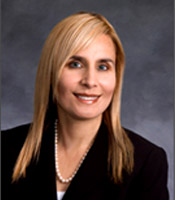
“Tonight’s action is disappointing, unprecedented and, based on the facts, entirely unjustified.
Since the day she was hired, the Chancellor has given her unwavering devotion to fulfilling the fundamental public mission of UC Davis and doing everything the UC President and Board of Regents have asked her to.
By any measure – and according to numerous voices throughout the Davis and Sacramento communities -- her leadership has helped put the university on a path to globally recognized excellence and historic diversity. More Californians than ever before – including more women and more students of color -- are receiving a world-class education at UC Davis under her stewardship.
This smacks of scapegoating and a rush to judgment driven purely by political optics, not the best interests of the university or the UC system as a whole.
The Chancellor welcomes an independent, objective investigation and a full release of all relevant documents and public records.
Make no mistake: we intend to vigorously defend Linda’s professional reputation and her standing as Chancellor of the university she loves.”
Since the day she was hired, the Chancellor has given her unwavering devotion to fulfilling the fundamental public mission of UC Davis and doing everything the UC President and Board of Regents have asked her to.
By any measure – and according to numerous voices throughout the Davis and Sacramento communities -- her leadership has helped put the university on a path to globally recognized excellence and historic diversity. More Californians than ever before – including more women and more students of color -- are receiving a world-class education at UC Davis under her stewardship.
This smacks of scapegoating and a rush to judgment driven purely by political optics, not the best interests of the university or the UC system as a whole.
The Chancellor welcomes an independent, objective investigation and a full release of all relevant documents and public records.
Make no mistake: we intend to vigorously defend Linda’s professional reputation and her standing as Chancellor of the university she loves.”
Hispanic Voter Registration Spikes
Registration among Hispanic voters is skyrocketing in a presidential election cycle dominated by Donald Trump and loud GOP cries to close the border. Arturo Vargas, executive director of the National Association of Elected and Appointed Officials, projects 13.1 million Hispanics will vote nationwide in 2016, compared to 11.2 million in 2012 and 9.7 million in 2008. READ MORE
Nevada Gov. Brian Sandoval endorses John Kasich for president
Gov. Brian Sandoval on Saturday endorsed Ohio Gov. John Kasich in the Republican presidential primary. Sandoval also joined his campaign as a national co-chair.
“Governor Kasich and I entered office at the same time with the same primary objective: to put people back to work,” Sandoval said in a statement. “Under John Kasich’s leadership, Ohio’s economy has undergone an incredible transformation. Over 425,000 jobs have returned to the state and people have hope again.”
Sandoval had declined to endorse any of the GOP candidates prior to Nevada’s caucus. He voted for Sen. Marco Rubio at the Nevada caucus. The Kasich campaign announced Sandoval’s support. READ MORE
“Governor Kasich and I entered office at the same time with the same primary objective: to put people back to work,” Sandoval said in a statement. “Under John Kasich’s leadership, Ohio’s economy has undergone an incredible transformation. Over 425,000 jobs have returned to the state and people have hope again.”
Sandoval had declined to endorse any of the GOP candidates prior to Nevada’s caucus. He voted for Sen. Marco Rubio at the Nevada caucus. The Kasich campaign announced Sandoval’s support. READ MORE
43 senators join challenge against Obama's executive actions on immigration
The legal challenge to President Barack Obama’s actions on immigration gained the support 43 Republican senators who argue that the president overstepped his constitutional authority in unilaterally expanding programs for millions of undocumented immigrations.
Led by Majority Leader Mitch McConnell, the senators filed a friend-of-the-court brief in the case of United States v. Texas on Monday – a lawsuit with 26 states challenging Obama’s actions. The Supreme Court is set to hear arguments later this month with a rule possibly coming in June.
READ MORE
Led by Majority Leader Mitch McConnell, the senators filed a friend-of-the-court brief in the case of United States v. Texas on Monday – a lawsuit with 26 states challenging Obama’s actions. The Supreme Court is set to hear arguments later this month with a rule possibly coming in June.
READ MORE
What is the Latino Vote Anyway?
According to Pew, Latinos of Mexican origin are 53.5 percent of the electorate, 13.8 are Puerto Rican, Cubans are 6.6 percent and Central Americans and South Americans together are 18.8 percent of the eligible voters. A group Pew refers to as "other Spanish" is 7.9 percent. READ MORE.
Rise of Latino Political Power in Sacramento Could Give New Momentum to Health Care
When Anthony Rendon, D-Paramount, is sworn in as Assembly Speaker Monday, it will mark a historic moment in California politics: For the first time, the two top posts in the state legislature will be held by Latinos. READ MORE
Bernie Sanders' "Tenemos Familias" Ad: A Latino Face on Inequality
The docu-ad provides the account of how in 2008 when the tomato pickers were first fighting for increased wages and improved working conditions Sanders went down to Immokalee. He then came back to Washington D.C. where he held hearings on the issue. The political pressure spurred by Sanders coupled with the public support for the pickers led improvements for the workers. READ MORE
Latino vote: Will the sleeping giant finally choose the next president?
Rudy Zamora senses history in the making for that long-sleeping giant in the presidential election: the Latino vote. He will become a first-time voter in the November general election, taking one step toward erasing Latino voters' spotty record of registering and actually going to vote.
"We need to show the country that we're ready to take on the battle," said Zamora, 29, who will become a U.S. citizen later this year, allowing him to cast his first ballot. "I clearly believe Latinos have the power to elect the next president of the United States," he added. READ MORE
"We need to show the country that we're ready to take on the battle," said Zamora, 29, who will become a U.S. citizen later this year, allowing him to cast his first ballot. "I clearly believe Latinos have the power to elect the next president of the United States," he added. READ MORE
Congressman Becerra accuses Cruz, Rubio of 'running from their Latino heritage'
One of the highest ranking Latinos in Congress says that presidential contenders Marco Rubio and Ted Cruz are deniers of their Latino heritage. In a videotaped conversation with South Carolina Democratic Party Chairman Jaime Harrison, Congressman Xavier Becerra, a Californian who heads the House Democratic Caucus, said the two senators seem to be distancing themselves from their Hispanic roots. READ MORE
Activists Mobilize Iowa's Growing Latino Population Toward Caucuses
When you think of Iowa, you probably think — lots of white people. And, that's true, but the state is also home to a growing number of Latinos.
Hispanics now make up 5.6 percent of the state's population, according to 2014 estimates from the Census Bureau. To put that in perspective, that means the Hispanic community in Iowa these days is twice the size it was during the 2000 caucuses.
And, this year, for the first time, Latinos in Iowa are trying to systematically organize themselves to caucus. READ MORE
Hispanics now make up 5.6 percent of the state's population, according to 2014 estimates from the Census Bureau. To put that in perspective, that means the Hispanic community in Iowa these days is twice the size it was during the 2000 caucuses.
And, this year, for the first time, Latinos in Iowa are trying to systematically organize themselves to caucus. READ MORE
Presidential contenders enter critical phase of 2016 election
There are just 26 days left before the Iowa caucuses and 34 days until the New Hampshire primary. That means every day is critical for every candidate as they make decisions on where to spend their time and where to spend their money. On Tuesday, nine of the 10 leading candidates for the Republican nomination were in either Iowa or New Hampshire. Democratic front-runner Hillary Clinton was also in Iowa, though her main rival, Sen. Bernie Sanders (I-Vt.), was delivering a major speech on Wall Street reform in Manhattan. It is becoming clearer with each passing day what each candidate needs to do in the early states — and where they are focusing their efforts. READ MORE
The Year in Latino Politics: Hispanics 'Trumped' By GOP Rhetoric
The year started with a record number of Latinos entering Congress and the buzz over what 2016 will mean when it comes to Latino representation. But the elation has had a hard time penetrating Donald Trump's cloud of anti-Mexican, anti-immigrant statements and his ascendancy among GOP candidates. So that's where we'll begin our review of political happenings that caught the attention of the Latino community in 2015: READ MORE
Three Facts About Latino Voters That Media Got Wrong In 2015 But Can Improve In 2016
Leading up to the 2016 elections, media should be careful not to perpetuate the same myths about Latino voters that many pushed in 2015, including portraying Latinos as a monolithic voter bloc exclusively interested in immigration or superficially attracted to Hispanic or bilingual candidates regardless of their policies, and suggesting this growing demographic will be a "non-factor" in 2016. READ MORE.
Hillary Clinton Picks Up Another Key Endorsement from Latino Lawmaker
BROOKLYN, New York - Hillary Clinton announced a new piece of her immigration reform policy here Monday, after receiving a key congressional endorsement from a leading voice in the Latino community. Illinois Rep. Luis Gutierrez praised Clinton as someone who would work to "keep families together and stop them from being destroyed by a broken immigration system" by protecting President Obama's executive orders on immigration. Gutierrez formally backed Clinton in a Univision op-ed published earlier in the day. READ MORE
The Supreme Court may change ‘one person, one vote.’ This would hurt Latinos and Democrats.
On Tuesday, the Supreme Court heard oral arguments in the case Evenwel v. Abbott. The main issue in the case is who must be counted when district lines are drawn.
The “one person, one vote” principle in operation since the 1960s has typically been interpreted to mean all persons — including people who cannot vote, such as children and non-citizens. The suit brought by Evenwel against the state of Texas seeks to change the definition to eligible voters.
The consequences of such a move are already being debated. Now, some new evidence from political scientist Carl Klarner suggests what the consequences would be: less voting power for Latinos and Democrats. READ MORE
The “one person, one vote” principle in operation since the 1960s has typically been interpreted to mean all persons — including people who cannot vote, such as children and non-citizens. The suit brought by Evenwel against the state of Texas seeks to change the definition to eligible voters.
The consequences of such a move are already being debated. Now, some new evidence from political scientist Carl Klarner suggests what the consequences would be: less voting power for Latinos and Democrats. READ MORE
Two Clintons. 41 years. $3 billion.
Over four decades of public life, Bill and Hillary Clinton have built an unrivaled global network of donors while pioneering fundraising techniques that have transformed modern politics and paved the way for them to potentially become the first husband and wife to win the White House. The grand total raised for all of their political campaigns and their family’s charitable foundation reaches at least $3 billion, according to a Washington Post investigation. READ MORE
Why Aren’t Marco Rubio and Ted Cruz Hispanic Enough for Whites?
Some high-profile liberals in the media aren’t satisfied with the fact that most Hispanics—about two-thirds, according to voter surveys—are registered Democrats. The lefties have to go for broke and try to make the very word “Hispanic” synonymous with “Democrat,” which would mean that only Hispanic Democrats are genuine Hispanics. READ MORE
Access Latina Non-Profit Aims to Boost, Grow Latina-Owned Businesses
AccessLatina, a non-for-profit organization pioneering entrepreneurial growth for women, announced the launch of the first-ever multi-market accelerator program developed to reach one of America’s fastest growing populations – Latinas – in STEAM, social innovation and agriculture. The accelerator was launched by two female entrepreneurs: Lucienne Gigante and Marta Michelle Colón. READ MORE
Landmark Climate Bill, SB 350, Signed into Law
Senate Bill 350, Senate President pro Tempore Kevin de León’s landmark climate change and clean energy legislation, was signed into law at a ceremony overlooking his district in Los Angeles on Wednesday October 7, 2015. SB 350 requires California, the largest state in the union, to generate half of its electricity from renewable energy sources and double energy efficiency in all buildings by 2030, while also substantially building the infrastructure for electric transportation. The landmark measure doubles down on California’s global leadership in powering the new economy of tomorrow. READ MORE
Democratic Caucus Chair Xavier Becerra Hosts Latino Leaders Roundtable
Latino leaders from across the country were invited to attend a roundtable meeting Tuesday with White House and Democratic congressional leaders to discuss issues affecting Latino families and what's being done to address them. The more than 20 Hispanic leaders invited to the meeting were set to discuss issues like immigration, health care, education and the economy. The meeting is hosted every year by Democratic Caucus Chairman Xavier Becerra. READ MORE
40 Under 40: Latinos in American Politics
Hispanic Heritage Month is a time to celebrate our ever-so important growing demographic in the United States for our worldwide achievements and contributions to American culture. Given the recent wave of anti-immigrant and anti-Latino sentiment that this election cycle has reignited, this year's list focuses on Latinos who are rising fast and showing what we can do. Selection for this list was done by a committee of peers -- some partisans; some not. Without further ado...here are 40 Latinos under 40 years old to watch in this upcoming election cycle. This new generation of political talent is listed here in alphabetical order by first name. READ MORE
LA RAZA PROJECTS: 16.7 MILLION LATINOS REGISTERED TO VOTE BY 2016
With just under a million Latino U.S. citizens turning 18 each year, the National Council of La Raza (NCLR) is projecting that by 2016, 16.7 million Latinos will be registered to vote. On National Voter Registration Day, NCLR issued a call to eligible Latinos in the U.S. to “Defeat bigotry on the campaign trail—register and vote!” READ MORE
Top 6 Facts on the Latino Vote
On September 17, 1787—exactly 228 years ago today—the nation’s founders signed the Constitution of the United States. Each year on this date, Americans celebrate Constitution Day, also referred to as Citizenship Day. To mark the occasion this year, the White House Task Force on New Americans—which President Barack Obama established last year to improve the civic, economic, and linguistic integration of immigrants and refugees—is launching the Citizenship Public Education and Awareness Campaign. The campaign promotes the importance of U.S. citizenship and provides free citizenship preparation resources for those eligible to become citizens. The goals of the campaign are to invite permanent residents to learn more about citizenship, ensure that permanent residents and community organizations have access to trusted sources of information, and provide those working toward citizenship with access to service providers.
Becoming a citizen through naturalization allows an individual to exercise one of the most sacred rights and responsibilities bestowed upon Americans by the Constitution: the right to vote. In order to fully exercise their voting rights, citizens over age 18 must first register to vote. In celebration of Hispanic Heritage Month, which began two days ago on September 15, a coalition of more than 100 organizations launched the Hispanic Heritage Month of Action, an on-the-ground and digital campaign to urge Latinos to register to vote.
In honor of these occasions, here are six important facts about Latinos and their voting power. READ MORE
Becoming a citizen through naturalization allows an individual to exercise one of the most sacred rights and responsibilities bestowed upon Americans by the Constitution: the right to vote. In order to fully exercise their voting rights, citizens over age 18 must first register to vote. In celebration of Hispanic Heritage Month, which began two days ago on September 15, a coalition of more than 100 organizations launched the Hispanic Heritage Month of Action, an on-the-ground and digital campaign to urge Latinos to register to vote.
In honor of these occasions, here are six important facts about Latinos and their voting power. READ MORE
GOP touts Latino outreach during Hispanic Heritage Month
The Republican party is launching a new wave of outreach to Latinos to mark Tuesday's onset of Hispanic Heritage Month, as the front-runner in the party's presidential race continues to alarm party insiders who fear he could alienate the fast-growing ethnic group with his criticisms of people living in the U.S. illegally.
Hispanic Heritage Month Perfect Backdrop For GOP Debate, Latino Congressman Becerra Says
Hispanic Heritage Month started on Sept. 15, on the eve of the second GOP debate. The Democratic National Committee (DNC) Hispanic Media Director Pablo Manriquez and Rep. Xavier Becerra, D-Calif., assessed some of the GOP candidates and what Latinos should consider. READ MORE
Why climate law advocates are watching these black and Latino lawmakers
Senate leader Kevin de León (D-Los Angeles) is author of a contentious climate change bill on gasoline use and renewable energy.
Every 30 Seconds, a Latino Reaches Voting Age. You Read That Right.
Republicans and Democrats looking for voters in 2016? Every 30 seconds, a Latino turns 18 and becomes eligible to vote. That's about 66,000 every month, or 800,000 every year, according to the Pew Research Center. Latino millennials represent an untapped voting bloc for Democrats and Republicans alike. They are growing faster than other ethnic groups and are mostly American citizens. They are more likely to be bilingual and more likely to use mobile technology. READ MORE.
How Jeb Bush's Family History and Latino Voter Outreach Could Boost His Presidential Bid
Jeb Bush, former governor of Florida and 2016 Republican presidential candidate, speaks to attendees at the Iowa State Fair Soapbox in Des Moines, Iowa, U.S., on Friday, Aug. 14, 2015. Sampling a fried Snickers bar and sidestepping a few hecklers, Bush made his way through the Iowa State Fair on Friday as he tried, and at times showed signs of struggling, to present himself as a fresh voice in the Republican presidential field.
Hillary Clinton Campaign Stands Up For Latino Immigrants While Slamming Trump and Walker
Hillary Clinton’s campaign called out both Scott Walker and Donald Trump for their positions of support for extreme anti-immigrant policies.
Silicon Valley Has the Tools to Hack Its Diversity Problem
Recently the Congressional Hispanic Caucus Institute (CHCI) led a delegation of leaders for a summit and meetings with Silicon Valley company executives to discuss a roadmap to bridge the diversity gap. With Latinos averaging 4.5 percent and African Americans 2.5 percent of the Silicon Valley workforce, the sector is missing out on top diverse talent. We had a constructive dialogue with glimmers of positive trends, but we know Silicon Valley has the tools to hack its diversity problem. READ MORE.
For Latinos, Environment Seems Just As Important As Immigration
An increasing amount of research suggests the environment — an issue that has long been seen within the purview of progressive, white liberals — is now increasingly important to Latinos.
Opinion: California Senate leader de León melds two worlds
Kevin de León, the first Latino leader of California’s Senate in more than a century, remembers riding the bus with his mother, Carmen, a Mexican immigrant, as she traveled to her menial job on the fringes of American society. - Marcos Breton Sacbee.com
'Hispanic paradox' - U.S. Latinos outliving richer whites - not genetic, study finds
Hispanics are living longer than whites or blacks – and are surpassing the life expectancy of other groups – according to a comprehensive report released by the Centers for Disease Control and Prevention on Tuesday. The data used for the report came from health surveys, death and U.S. census data and covered the years 2009 through 2013.
It's official: Latinos now outnumber whites in California
The official confirmation had to wait until new population figures were released by the Census Bureau this summer. The new tally, released in late June, shows that as of July 1, 2014, about 14.99 million Latinos live in California, edging out the 14.92 million whites in the state.
Report shows a troubling turn for Latino politicians and voters
California Latino voting strength is only half their proportion of California's population, the report said. They hold 1 in 8 state Senate seats and an even smaller percentage of supervisorial chairs.
Arizona Law That Banned Mexican-American Studies May Be Discriminatory, Court Rules A federal appeals court on Tuesday ordered a trial to assess whether an Arizona law that was passed to ban a Mexican-American studies curriculum in Tucson's public schools intentionally discriminates against Hispanics. READ MORE.
|
Other News
The Growing Success of Latina Political Candidates
By Christina Bejaranolm Latino Decisions
When Latinas Succeed, America Succeeds
Huffington Post 4/13/2015
Texas Declares May 1 'Mexican-American Studies Day'
Huffington Post 5/1/2015
Latino Political Network launched in Iowa
Ottumwa Courier Online
Latino groups question commitment of political donors to community
MSNBC News Online
By Christina Bejaranolm Latino Decisions
When Latinas Succeed, America Succeeds
Huffington Post 4/13/2015
Texas Declares May 1 'Mexican-American Studies Day'
Huffington Post 5/1/2015
Latino Political Network launched in Iowa
Ottumwa Courier Online
Latino groups question commitment of political donors to community
MSNBC News Online
Latino Political Statistics
Latino Journal Digital!
Coast-to-Coast Distribution to Thought Leaders and Key Influencers in North America!
Click to read past editions:
Gov. Michelle Lujan Grisham, New Mexico
James E. Campos, Director, Office of Economic Impact and Diversity, Dept. of Energy
Dennis V. Arriola, CEO, AVANGRID
Meet John A. Perez, Chair, UC Regents
Meet Chair Rebecca Cameron Valcq, Public Service Commission of Wisconsin
Arizona Commissioner Lea Marquez Peterson, New Mexico - June 1, 2020
Commissioner Maria Bocanegra, Illinois Commerce Commission - May 25, 2020
California Commissioner Martha Guzman Aceves, CPUC - May 18, 2020
Meet Utility Commissioner Sadzi Martha Oliva, Illinois - May 11, 2020
Meet Commissioner Valerie Espinoza from New Mexico - Cinco de Mayo!
COMPLIMENTARY HARD COPY Past Editions:
Thank You Charter Communications
Charter Communications helped to prepare and distribute via their cable television network the video below to increase the Latino vote.
We sincerely appreciate this collaboration and sincerely thank the company for stepping up to the plate.
Latino Get Out To Vote Message from the Latino Journal and Charter/Spectrum Communications.
Publisher's Corner
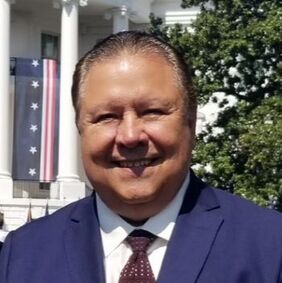
Jose L. Pérez, the Founder, Publisher & CEO of the Latino Journal, has led the publication since its inception in 1996.
Over twenty-four years, the Journal has evolved from a hard copy format to encompass various endeavors such as consulting, policy forums, non-profit development, and most recently, the launch of Latino Journal Digital.
In 2020, Latino Journal actively nurtured its Coast-to-Coast Latino Network. This strategic expansion aims to unify a combined Latino market value of $2.8 trillion across America.
America comprises over 62 million Hispanic Americans (including Puerto Rico). This significant and diverse population of Hispanic America holds tremendous potential to contribute to the economic, cultural, and civic trajectory of the United States.
Latino Journal is committed to building a better America for future generations.
Sincerely,
José L. Pérez
Text only: 916.752.4396
Latino Vote News
The race is on for the Latino vote
By Mary Jordan, Washington Post
Martin O’Malley Announces Candidacy for President: Can He Win the Latino Vote?
By Rodrigo Ugarte, Latin Post
2016 Candidates Need More Than Spanish To Win The Latino Vote
By Sara Bondioli, Huffington Post
Candidates facing more Latino voters who don’t speak Spanish
By Haya El Nasser, Aljazeera America
Why Hispanics Don’t Have a Larger Political Voice
By Nate Cohn, NY Times
By Mary Jordan, Washington Post
Martin O’Malley Announces Candidacy for President: Can He Win the Latino Vote?
By Rodrigo Ugarte, Latin Post
2016 Candidates Need More Than Spanish To Win The Latino Vote
By Sara Bondioli, Huffington Post
Candidates facing more Latino voters who don’t speak Spanish
By Haya El Nasser, Aljazeera America
Why Hispanics Don’t Have a Larger Political Voice
By Nate Cohn, NY Times
The Ballooning Importance Of The 'Latino Vote,' In 3 Charts
By Danielle Kurtzleben, NPR
What Latino voters care about more than immigration
By Patrick Gillespie, CNN
By Danielle Kurtzleben, NPR
What Latino voters care about more than immigration
By Patrick Gillespie, CNN
ENERGY
Hispanics In Energy (HIE) is a community-driven, non-profit organization designed to facilitate Hispanic inclusion in America’s energy industry. It is a resource for the energy industry, utility companies, municipalities, elected or appointed officials with oversight responsibility of energy related policies and practices, and communities on comprehensive energy matters. Visit the website here.
Invitation to Reception Honoring Geisha J. Williams, PG&E (Click to register online)
Poll Reveals: Latino Communities See Solar Energy as High Priority
Poll results were finalized by the William C. Velasquez Institute (WCVI) to reveal the large majority of Latinos in Southern California support and want to see a shift toward rooftop solar energy in our communities. The findings are very similar to those of a survey done last year, and further support EHC's movement for green, clean energy and illustrate the increasing prioritization of solar panel energy in Latino urban neighborhoods most affected by air pollution and dirty energy.
Latino Voters Are Crucial To the Environmental Movement; Studies Prove Most Consider Climate Change 'Very' Important With around 54 million Latinos living in the United States these day, Latino voters are easily a major factor in determining the outcomes of elections.
Latinos Are Making the Call for Climate Action. Now Leaders Should Listen.
Latinos don't need to be told that climate change is a problem that needs addressing.
Report: Latinos want environment-friendly candidates
Hispanics are increasingly more likely to vote for candidates who support climate change action and cleaner energy.
Latinos Are Making the Call for Climate Action. Now Leaders Should Listen.
Latinos don't need to be told that climate change is a problem that needs addressing.
Report: Latinos want environment-friendly candidates
Hispanics are increasingly more likely to vote for candidates who support climate change action and cleaner energy.
EDUCATION

Latinos must 'start offending people' on education, Christie says
Gov. Chris Christie on Wednesday urged the community's most powerful business leaders to flex their political muscle and "start offending people" to fix the country's education system.
Gov. Chris Christie on Wednesday urged the community's most powerful business leaders to flex their political muscle and "start offending people" to fix the country's education system.
5 facts about Latinos and education
Educational attainment among U.S. Latino has been changing rapidly in recent years, reflecting the group’s growth in the nation’s public K-12 schools and colleges. Over the past decade, the Hispanic high school dropout rate has declined and college enrollment has increased, even as Hispanics trail other groups in earning a bachelor’s degree.
Taking Care of Latino Elderly
http://www.canhr.org/factsheets/nh_fs/html/fs_challengingdischarge.htm
____________________________
Taking Care of Latino Elderly
http://www.canhr.org/factsheets/nh_fs/html/fs_challengingdischarge.htm
____________________________

